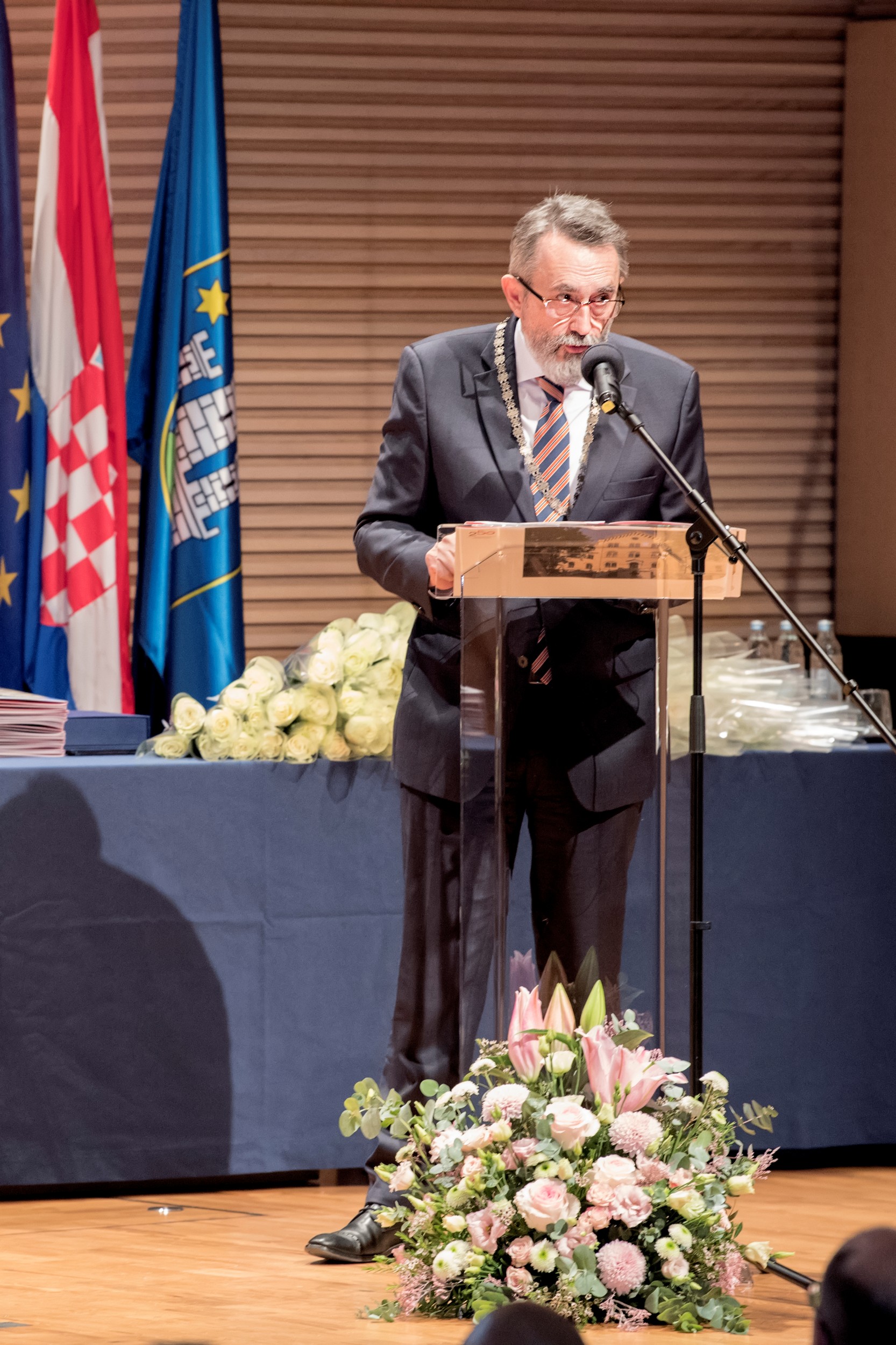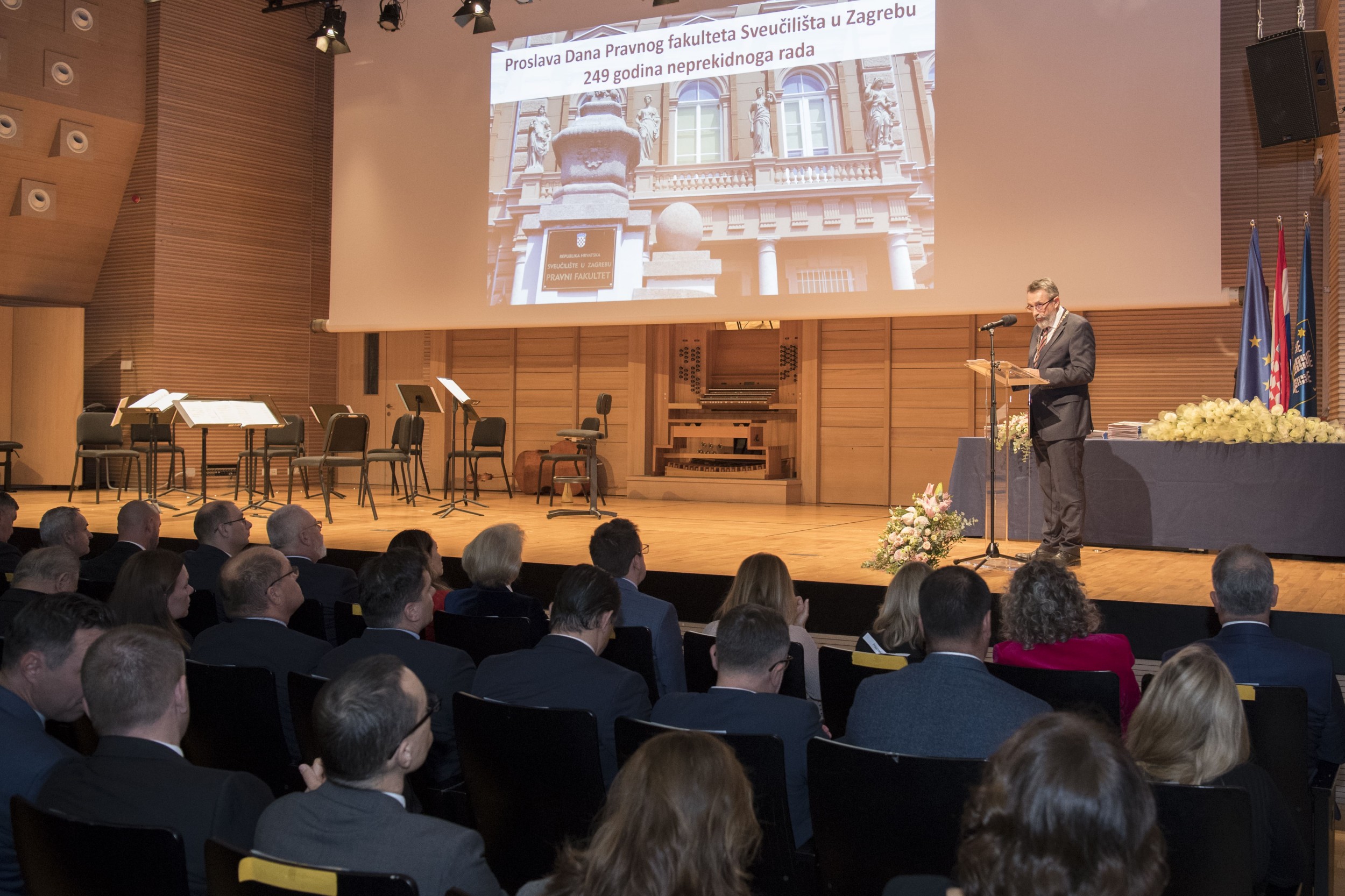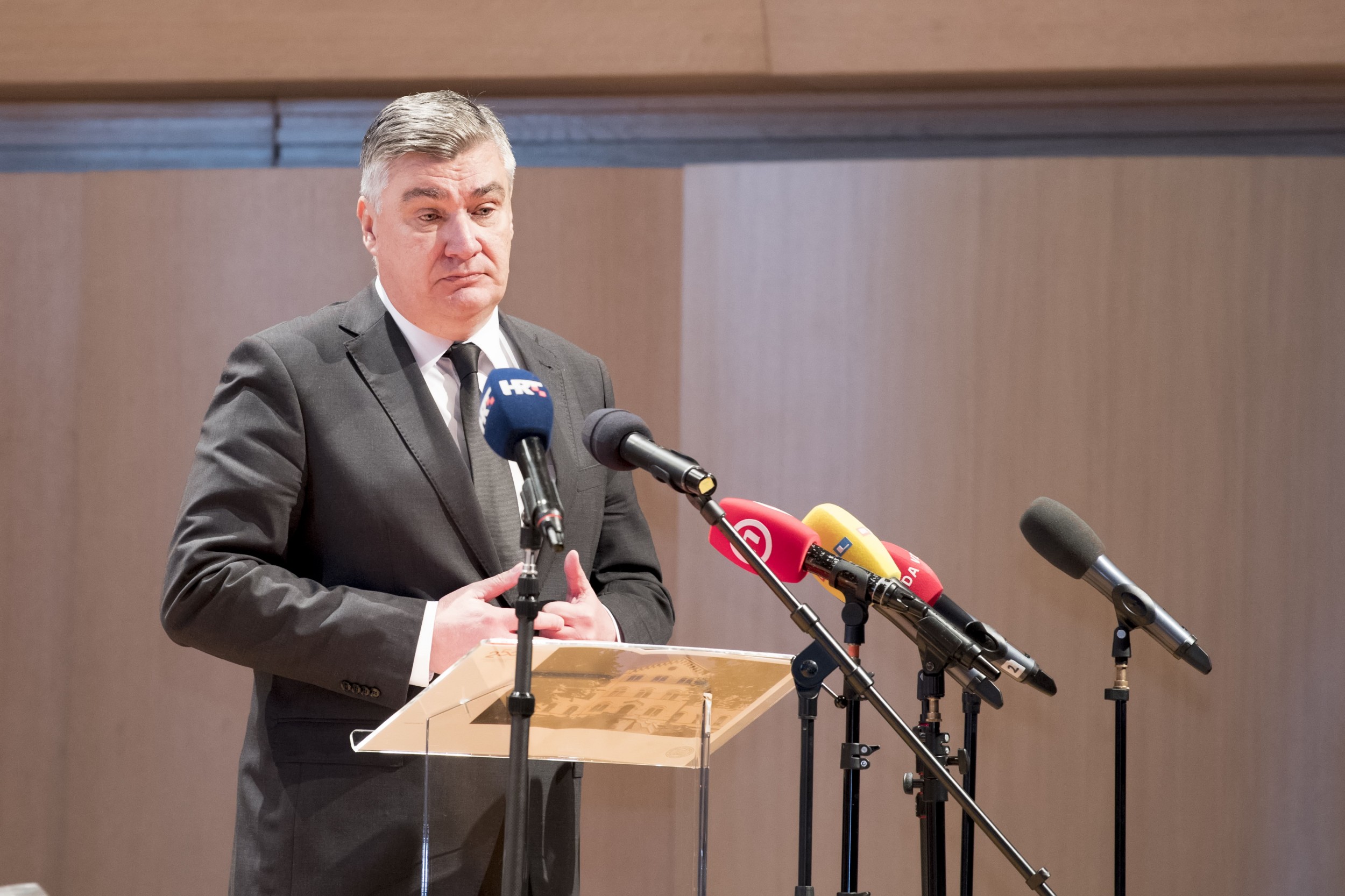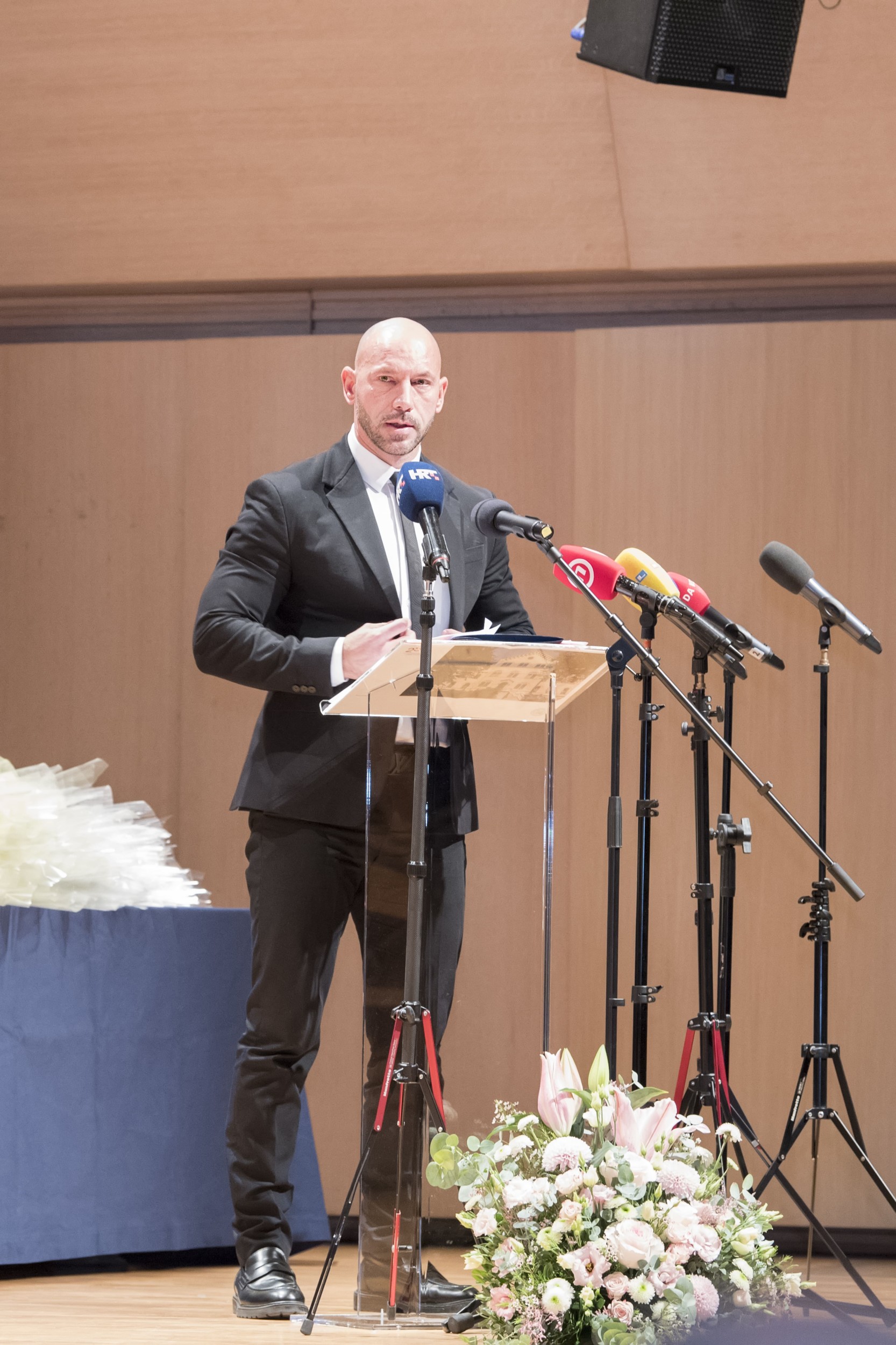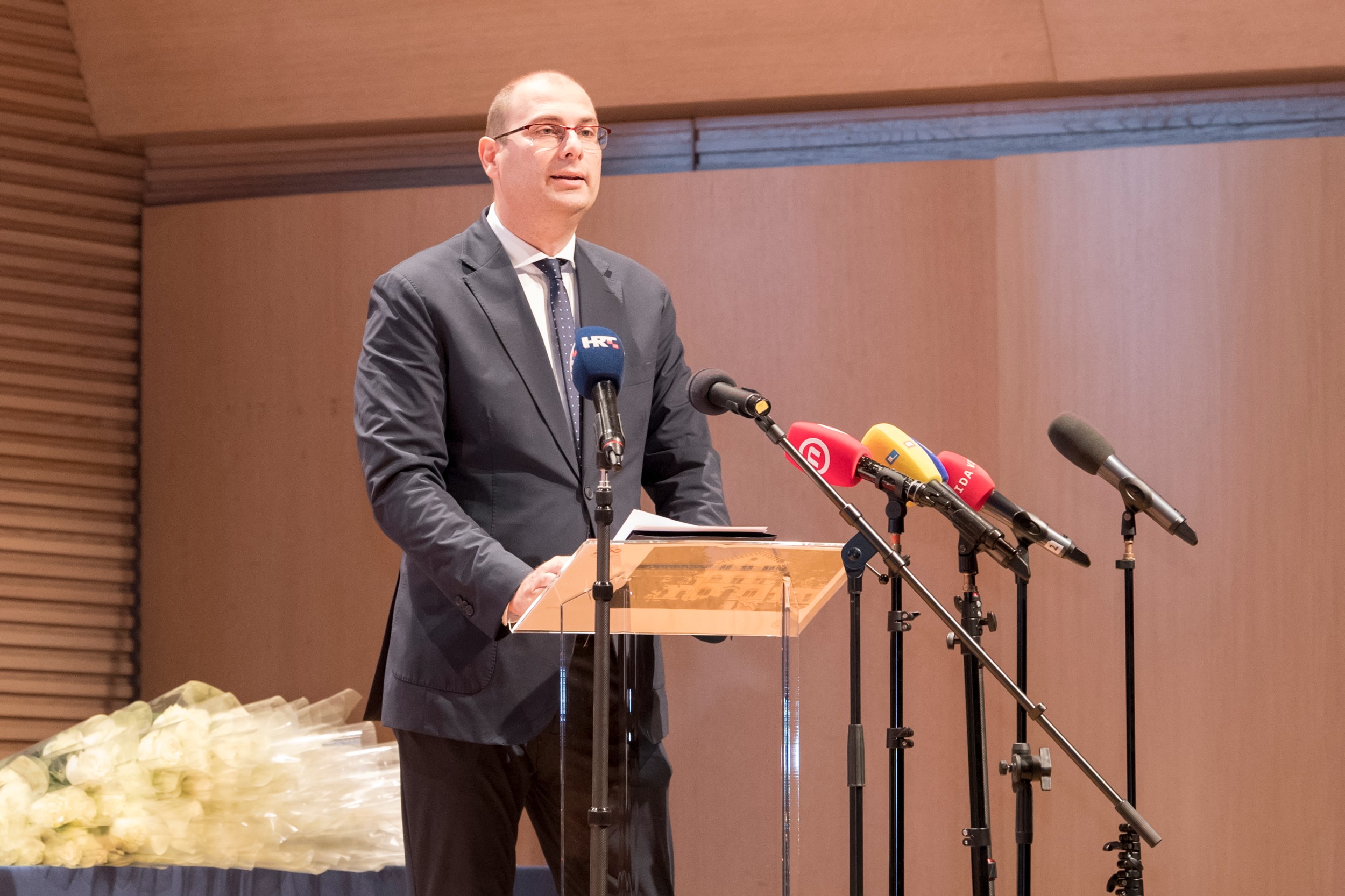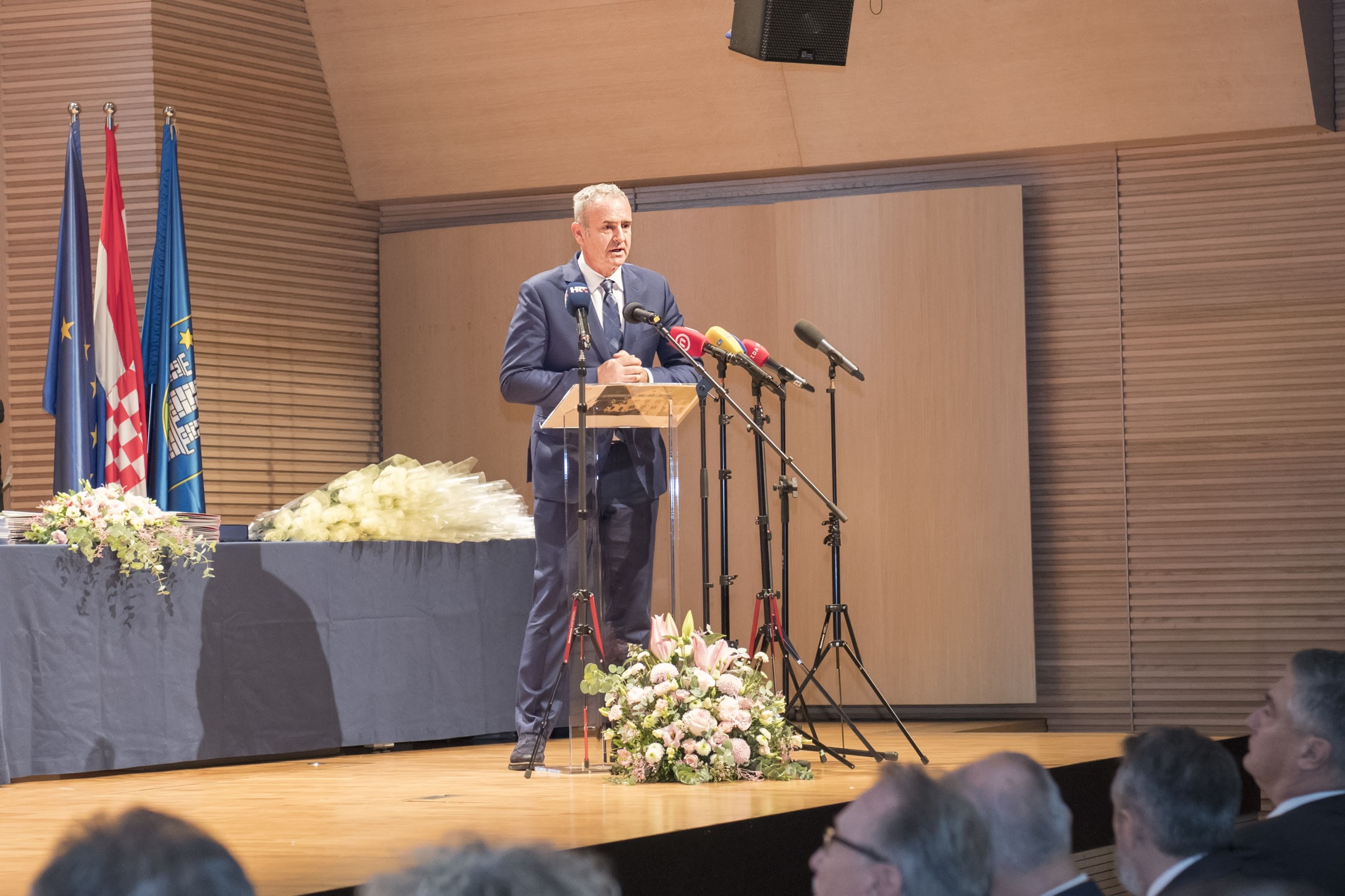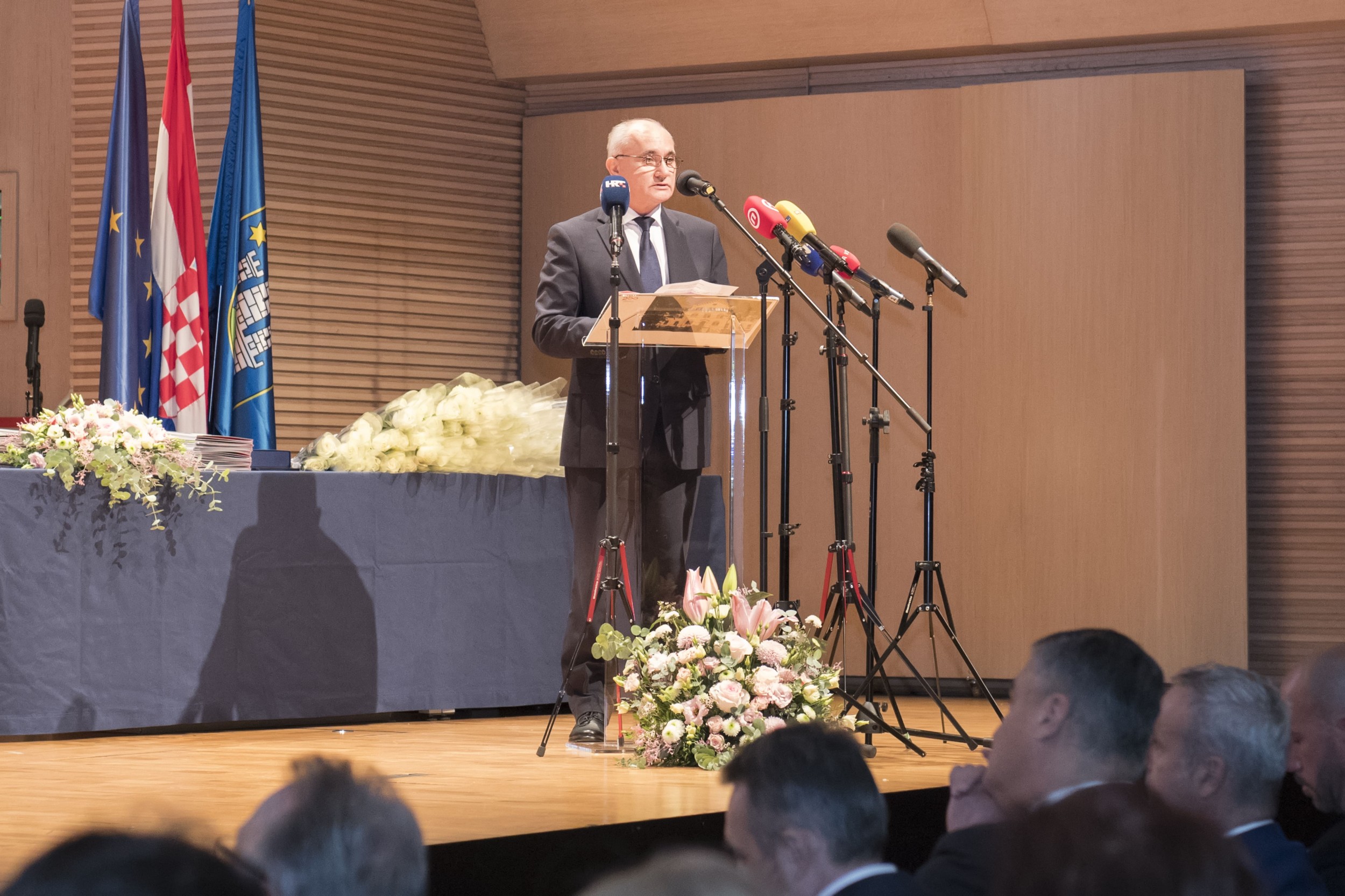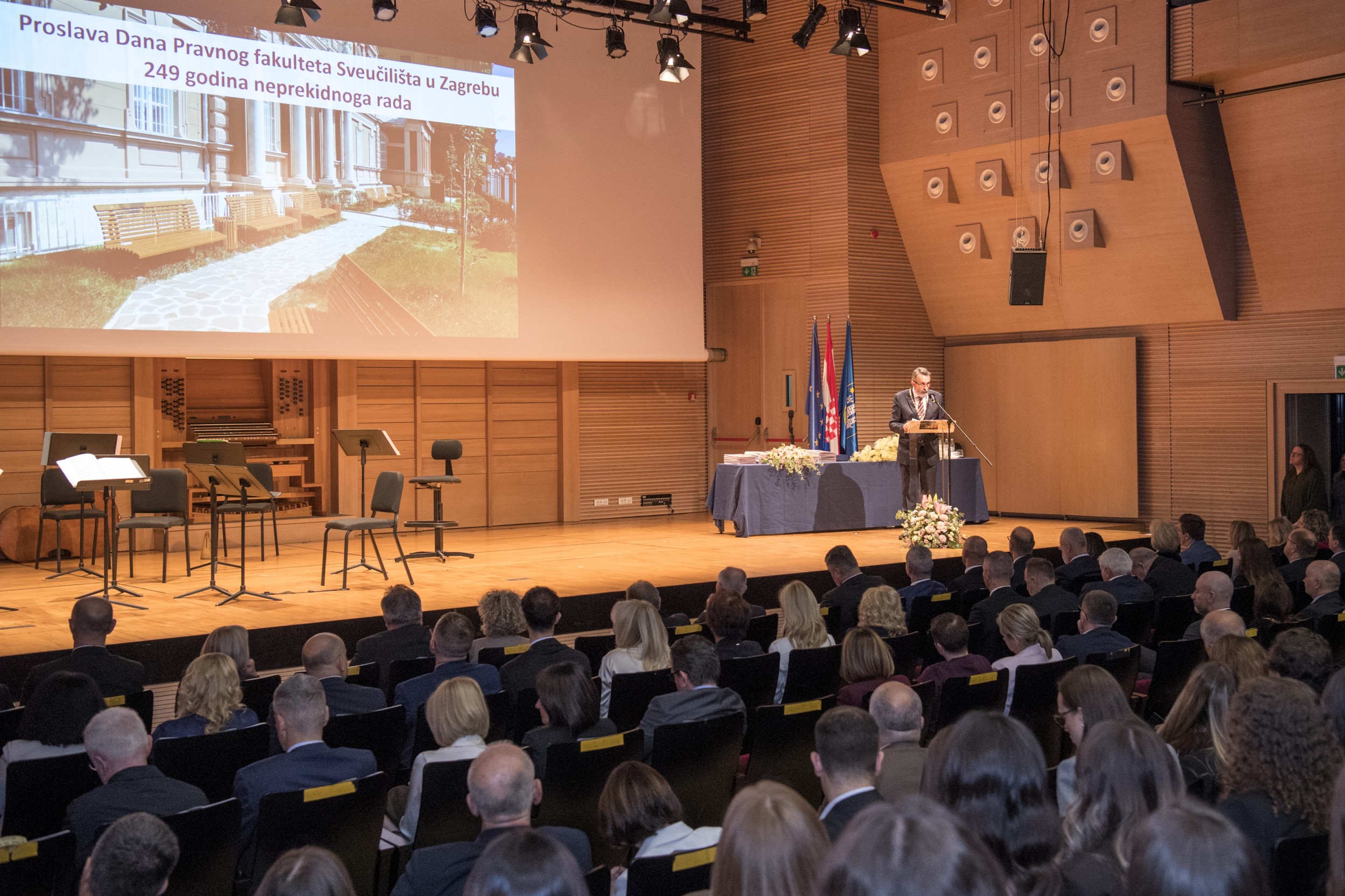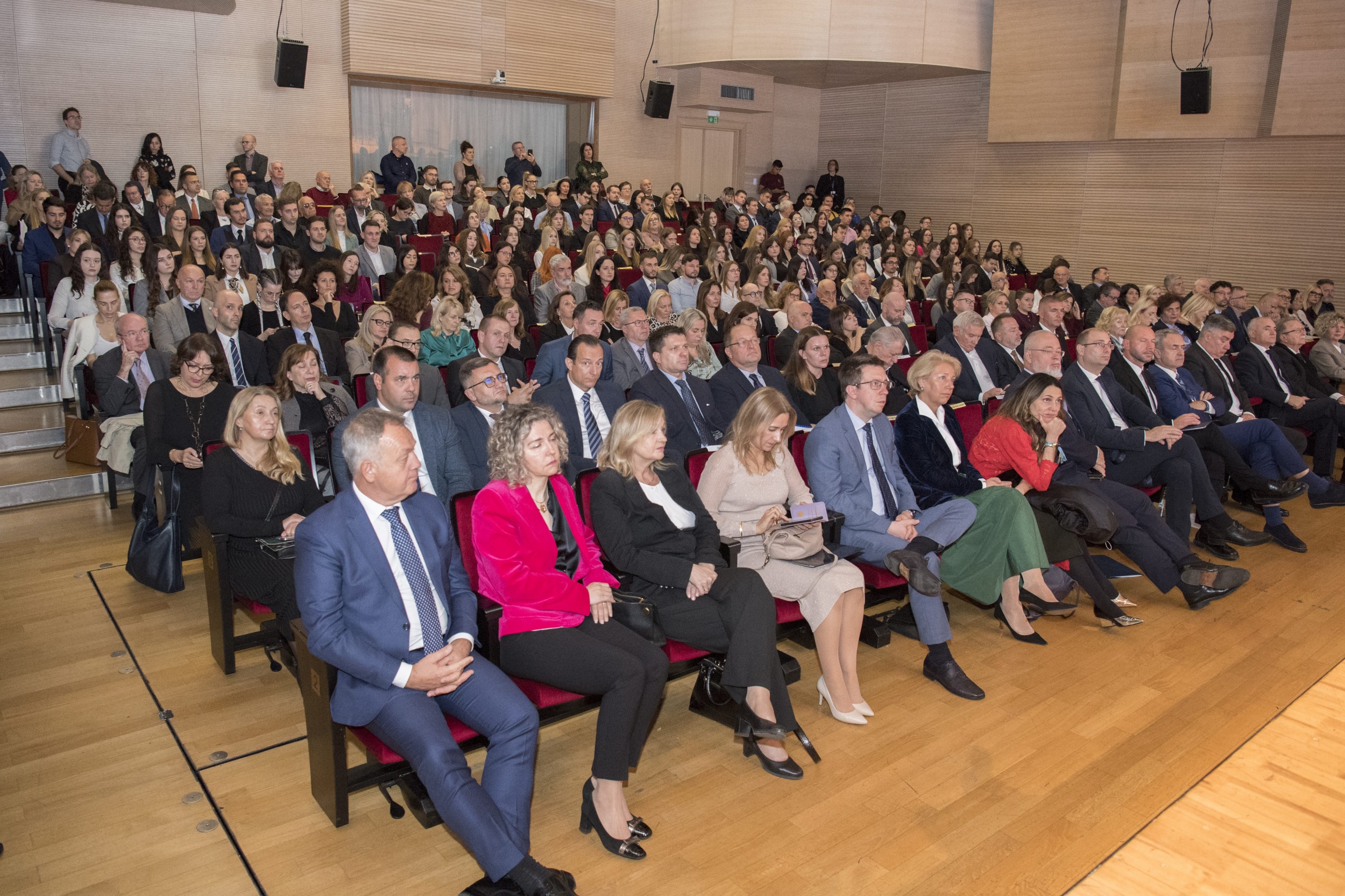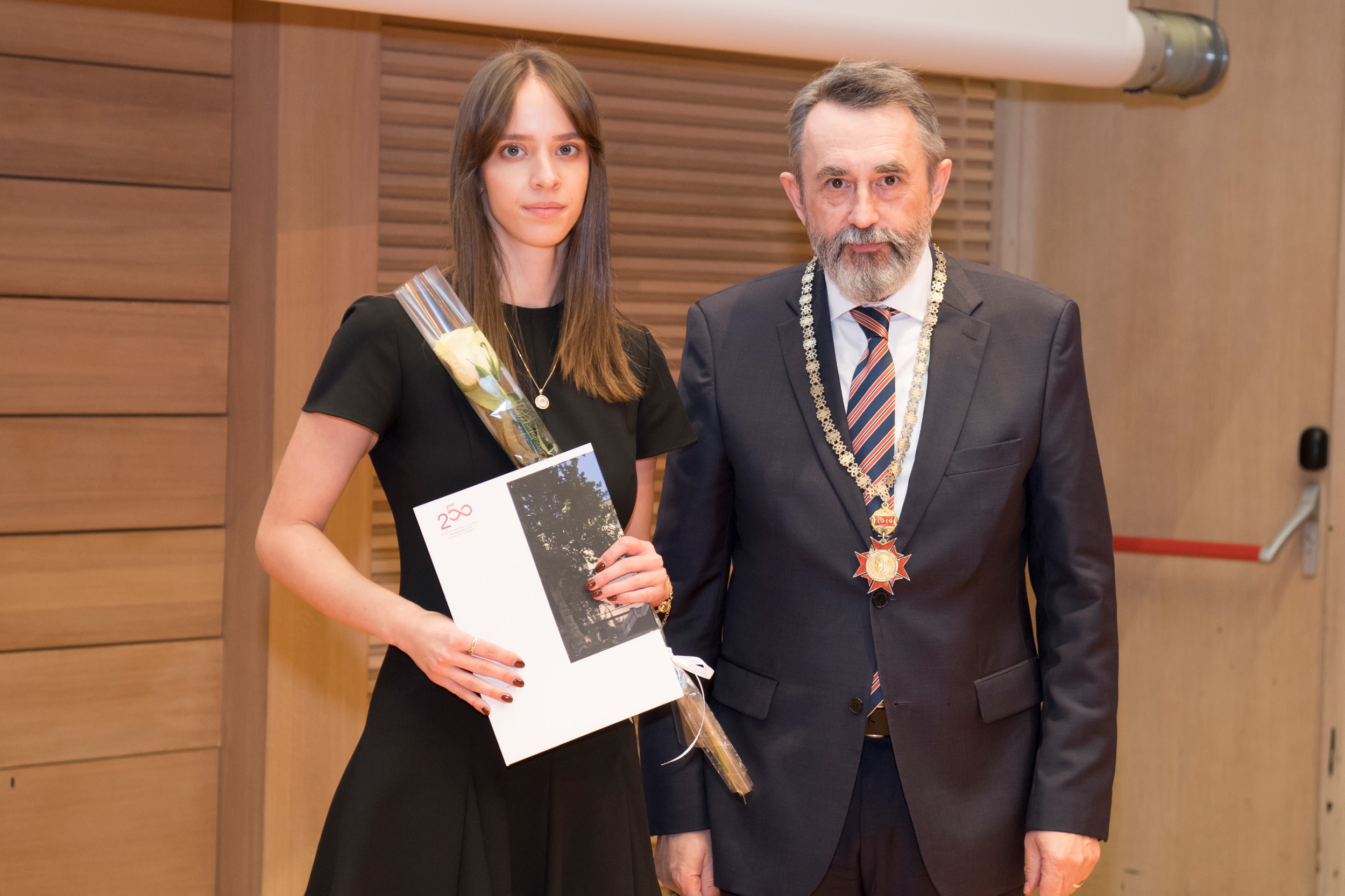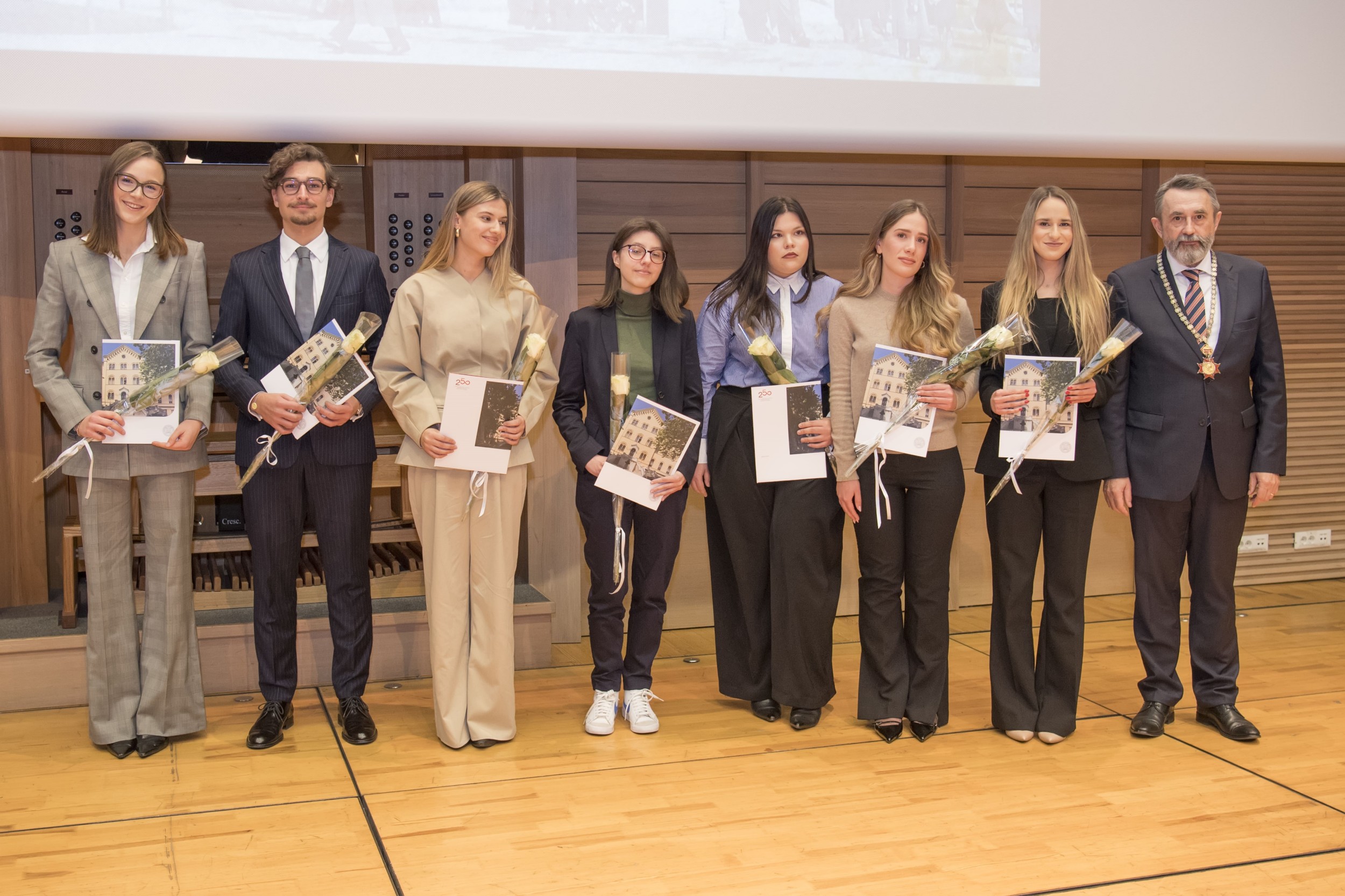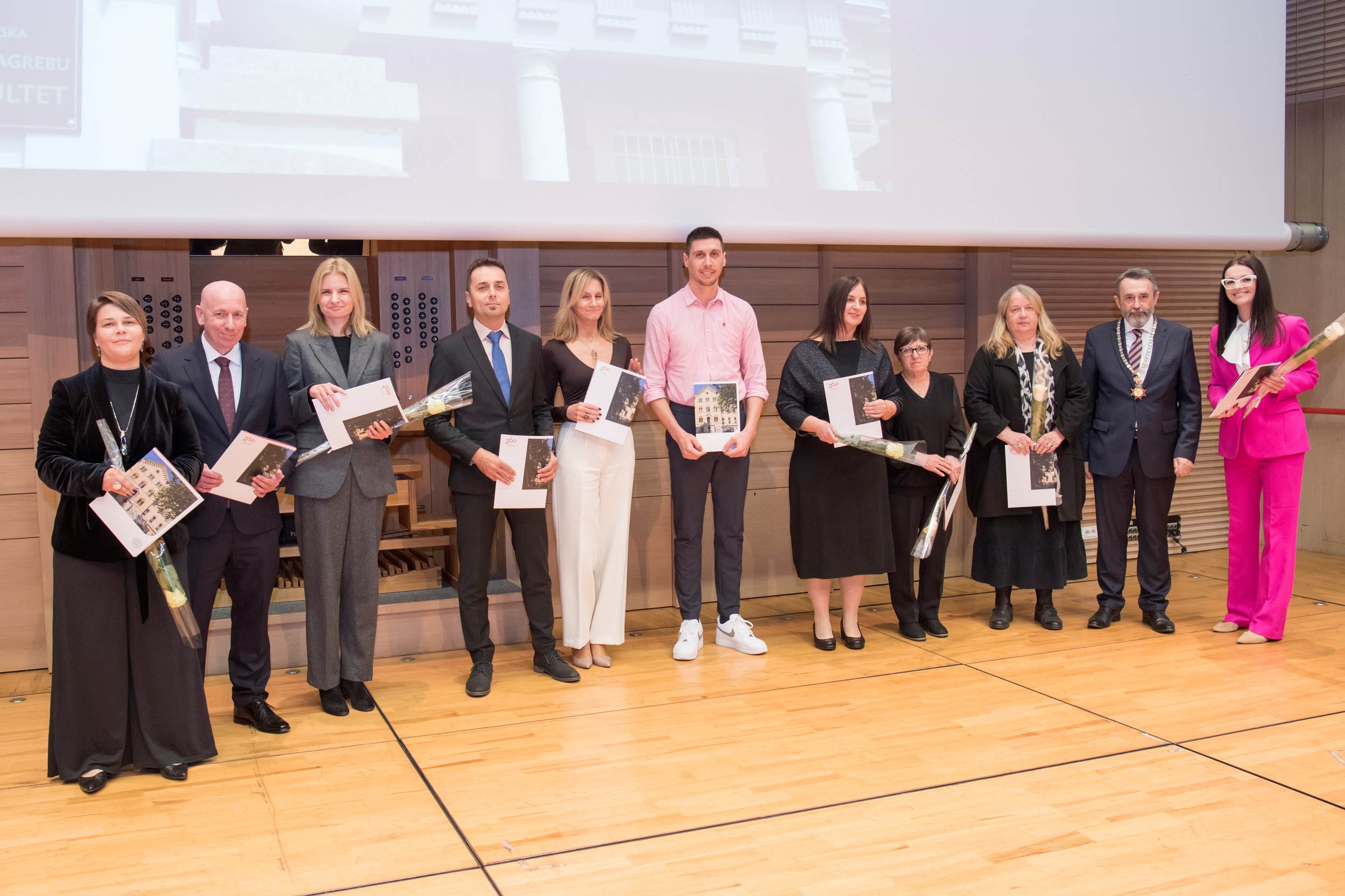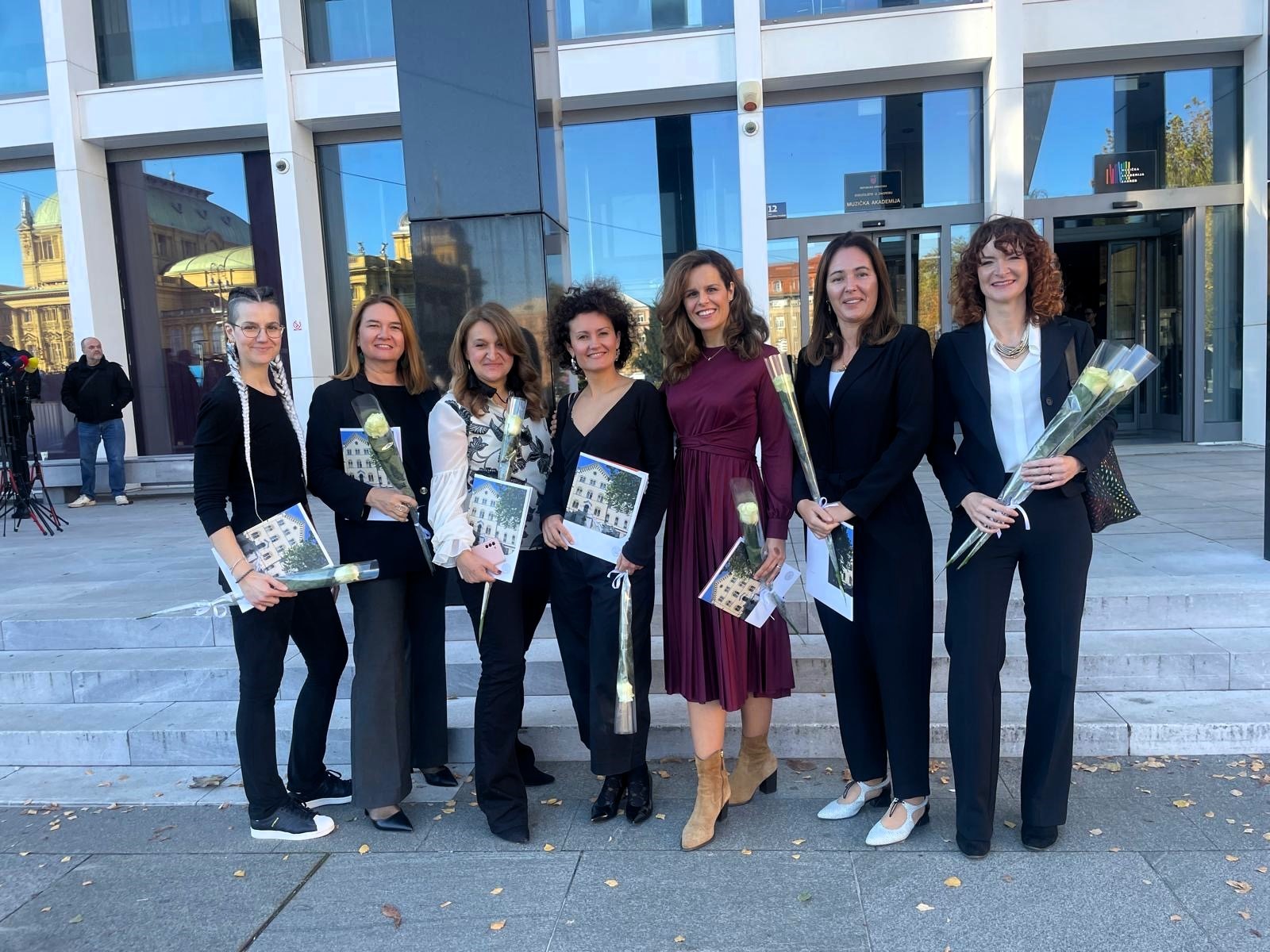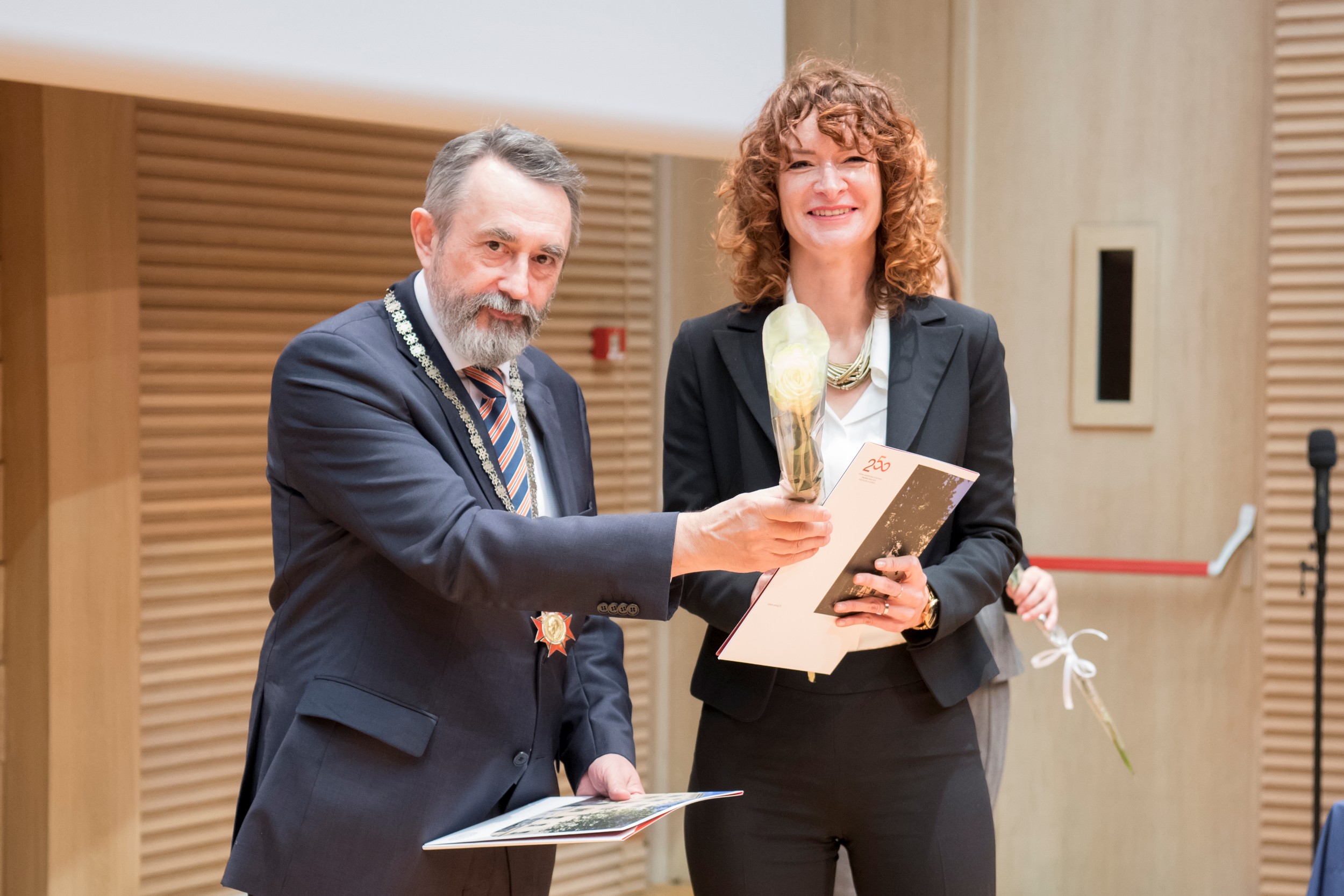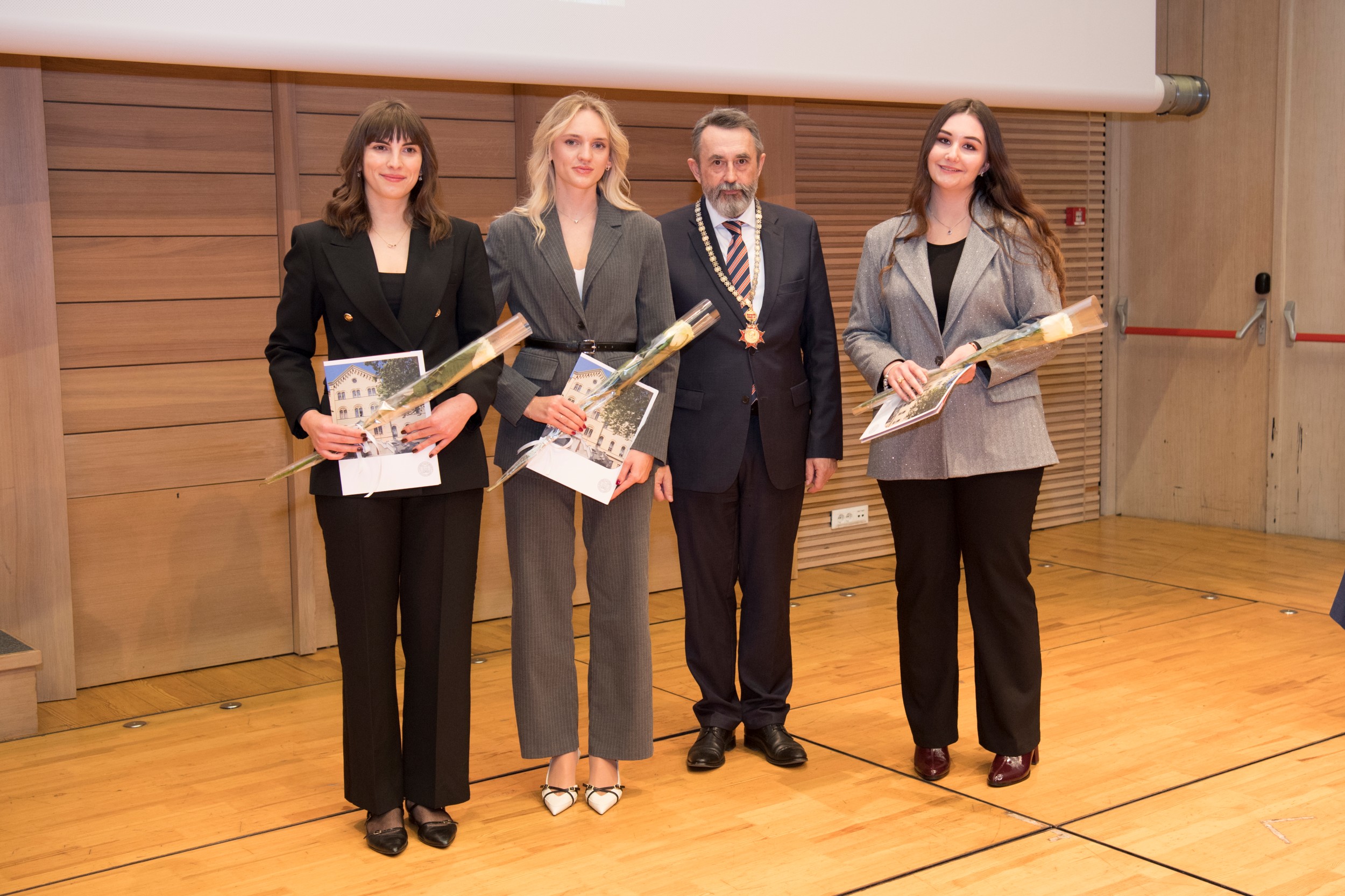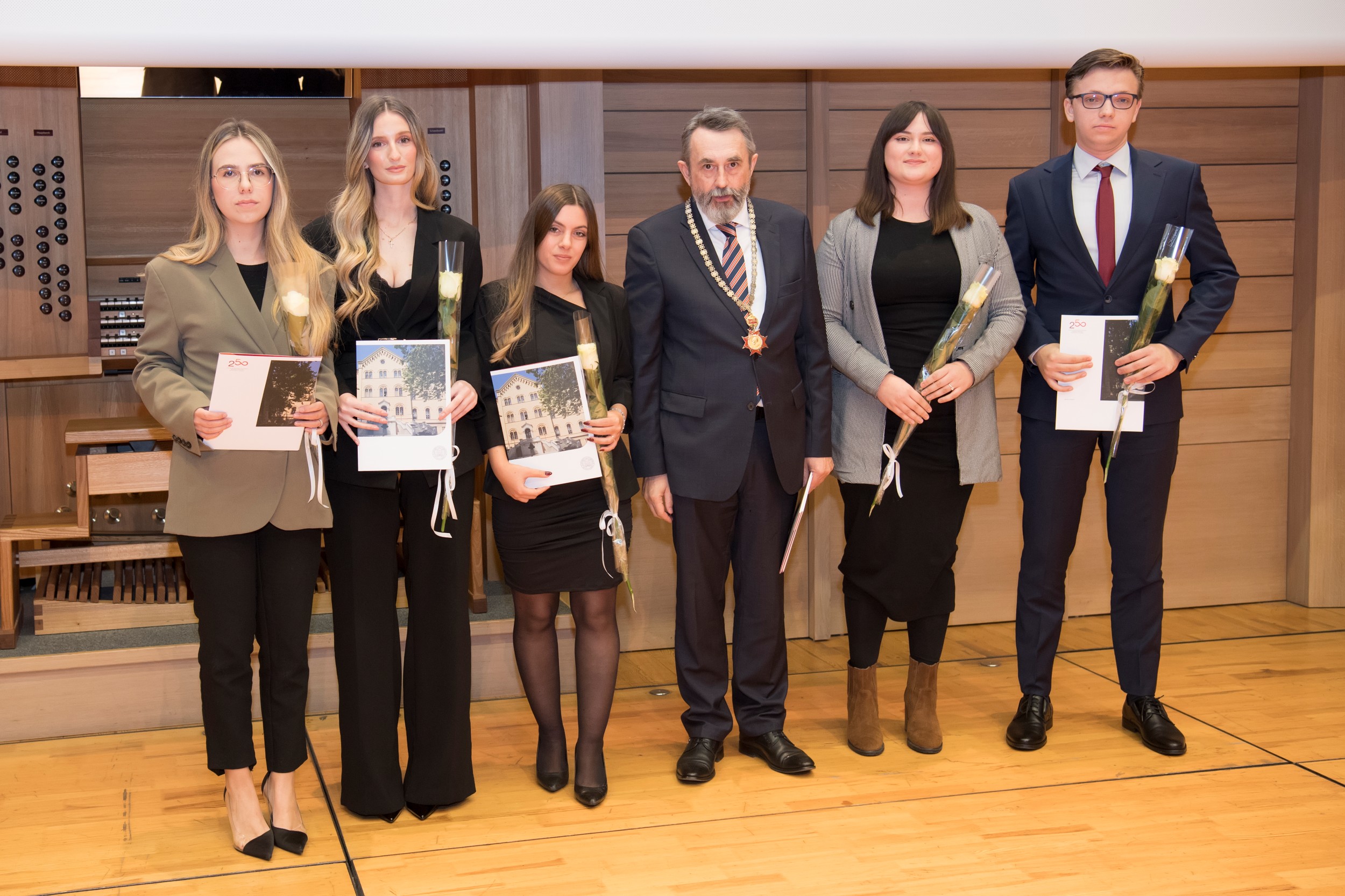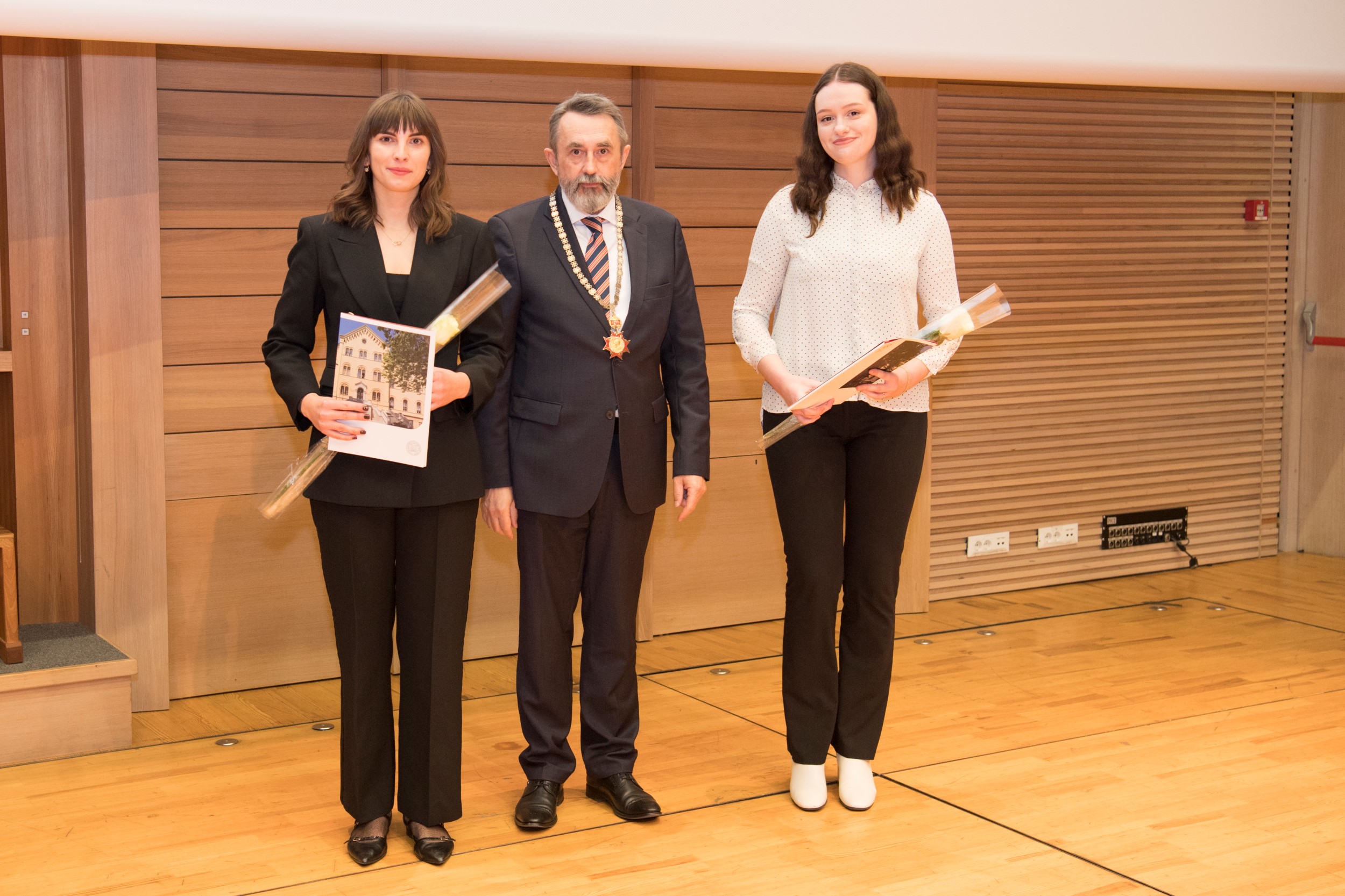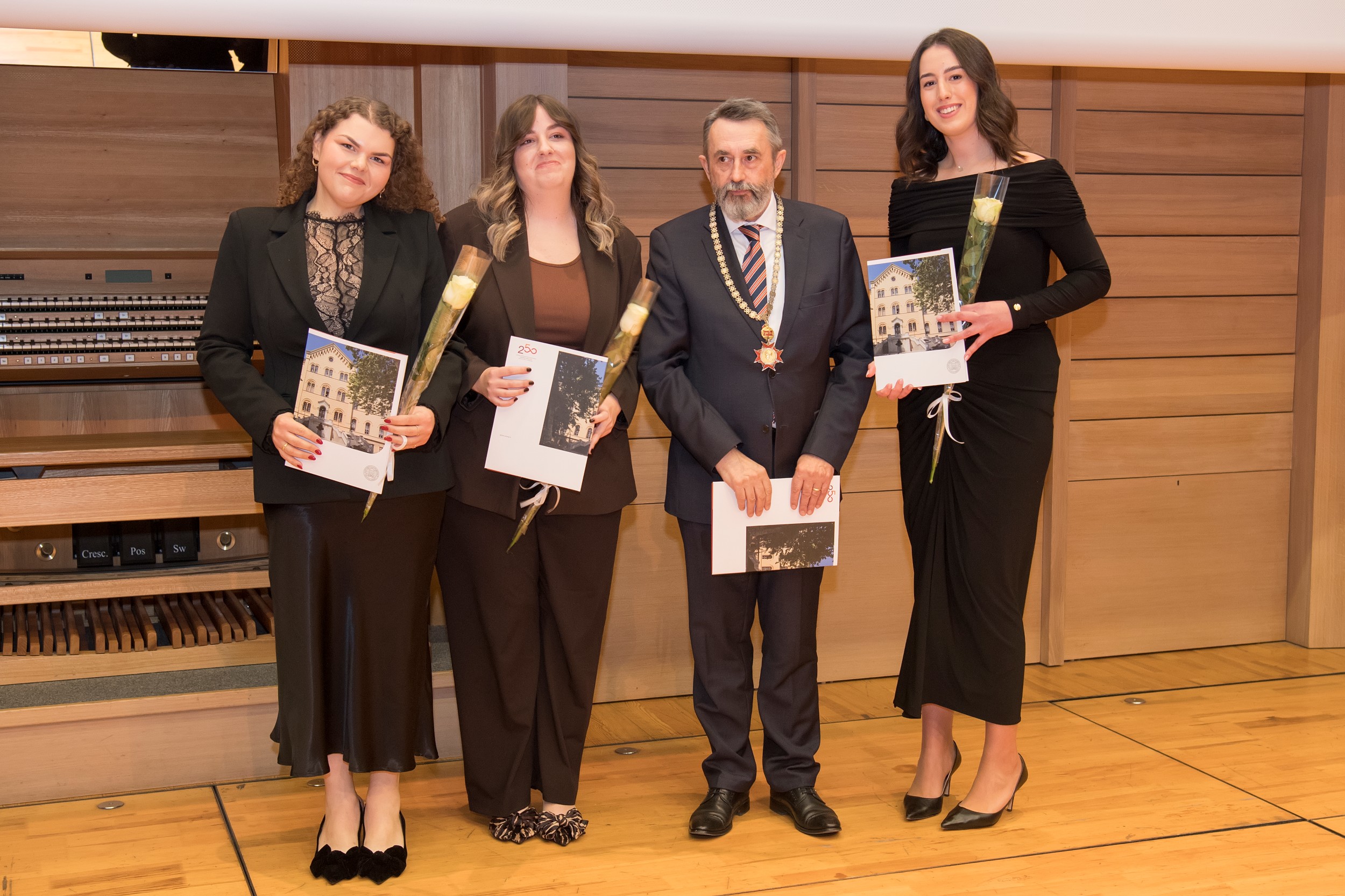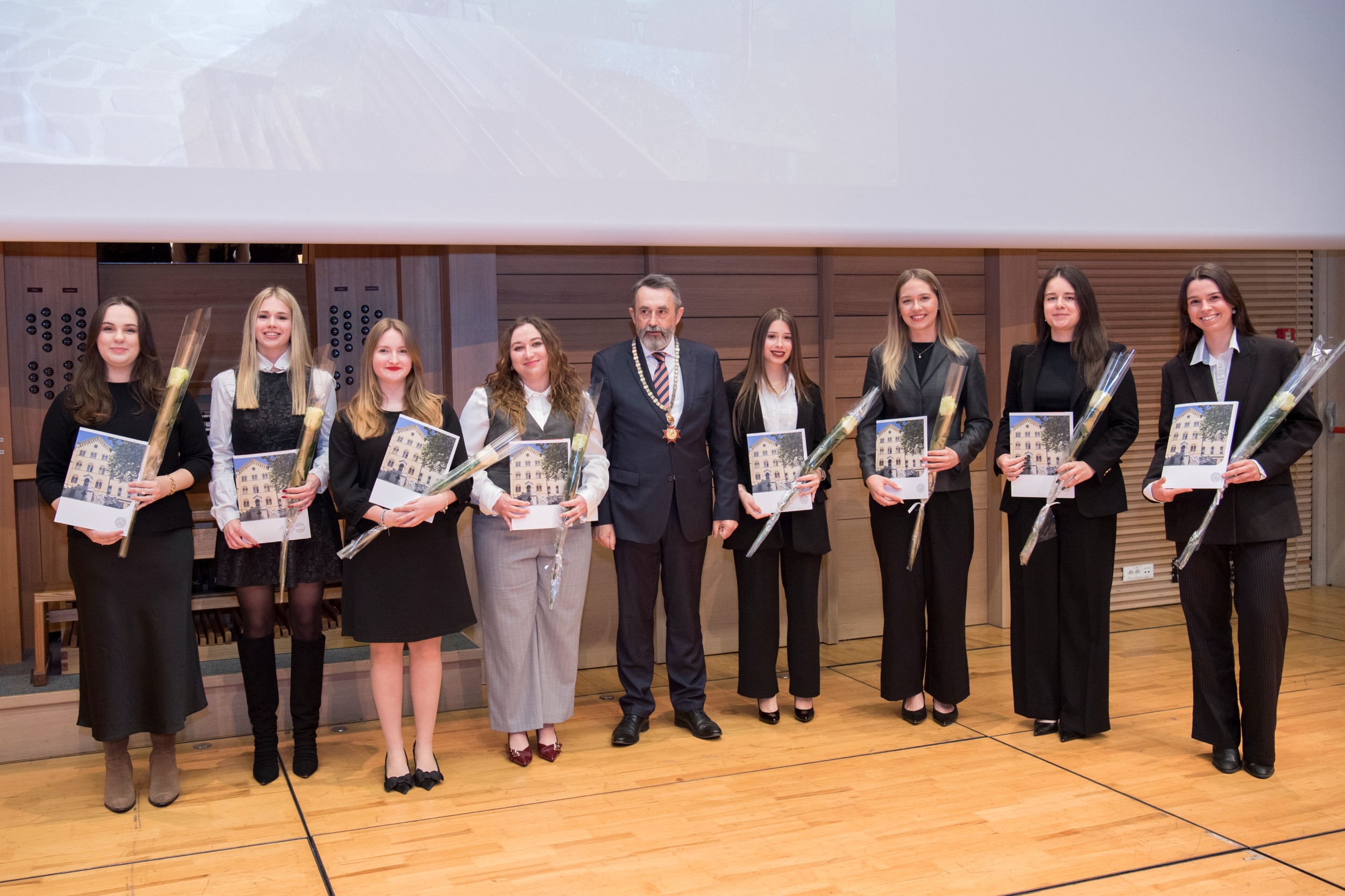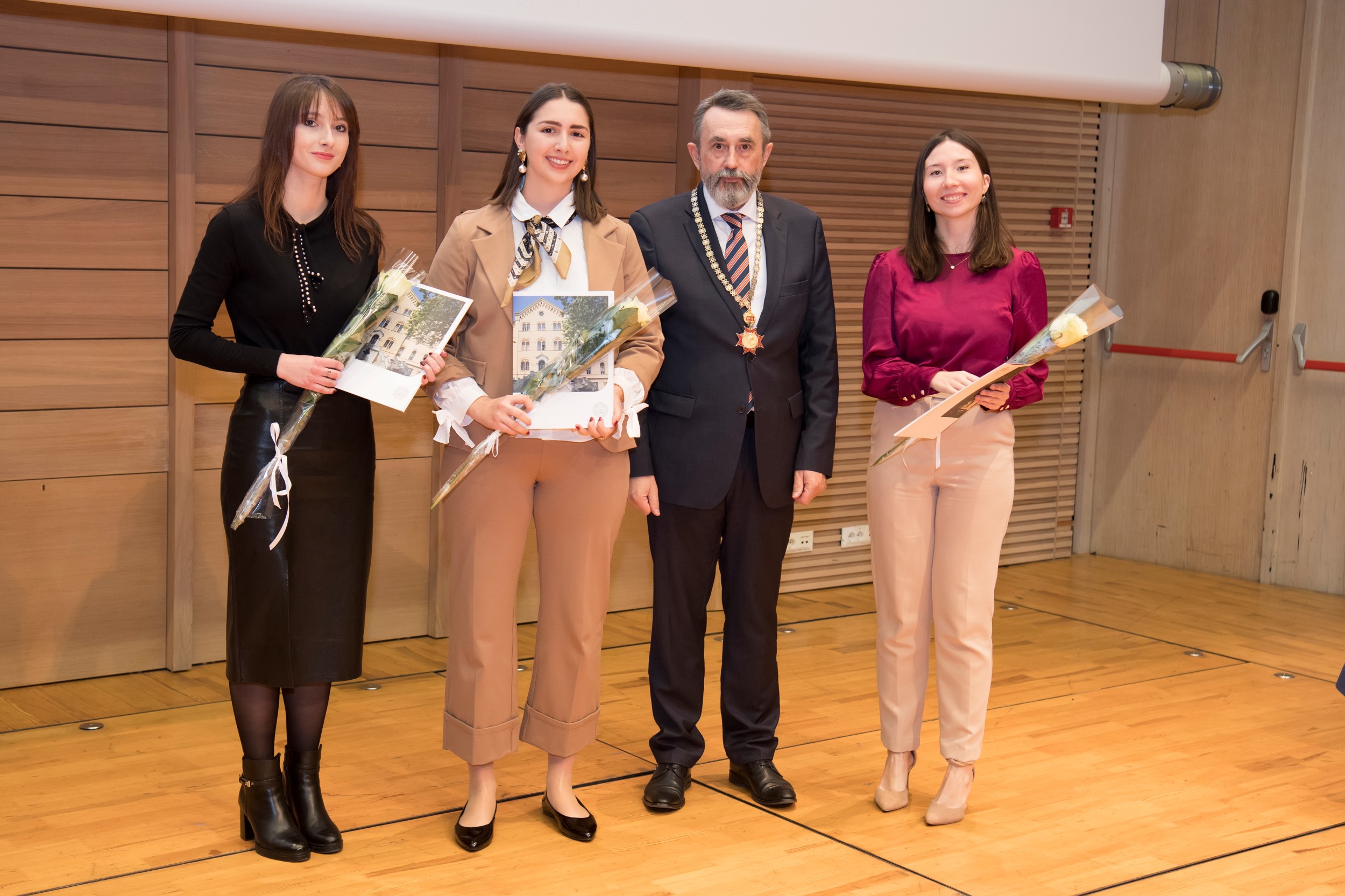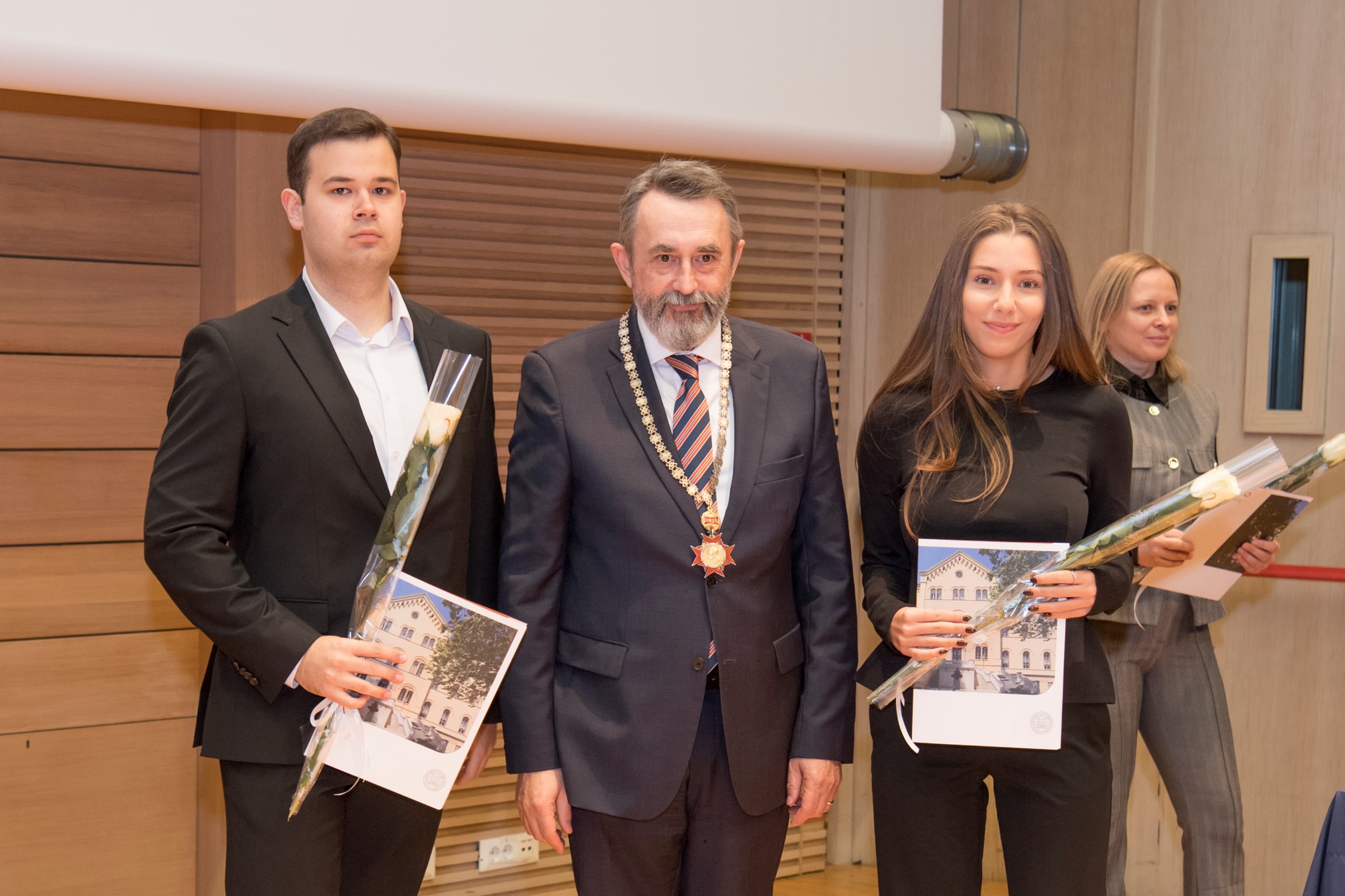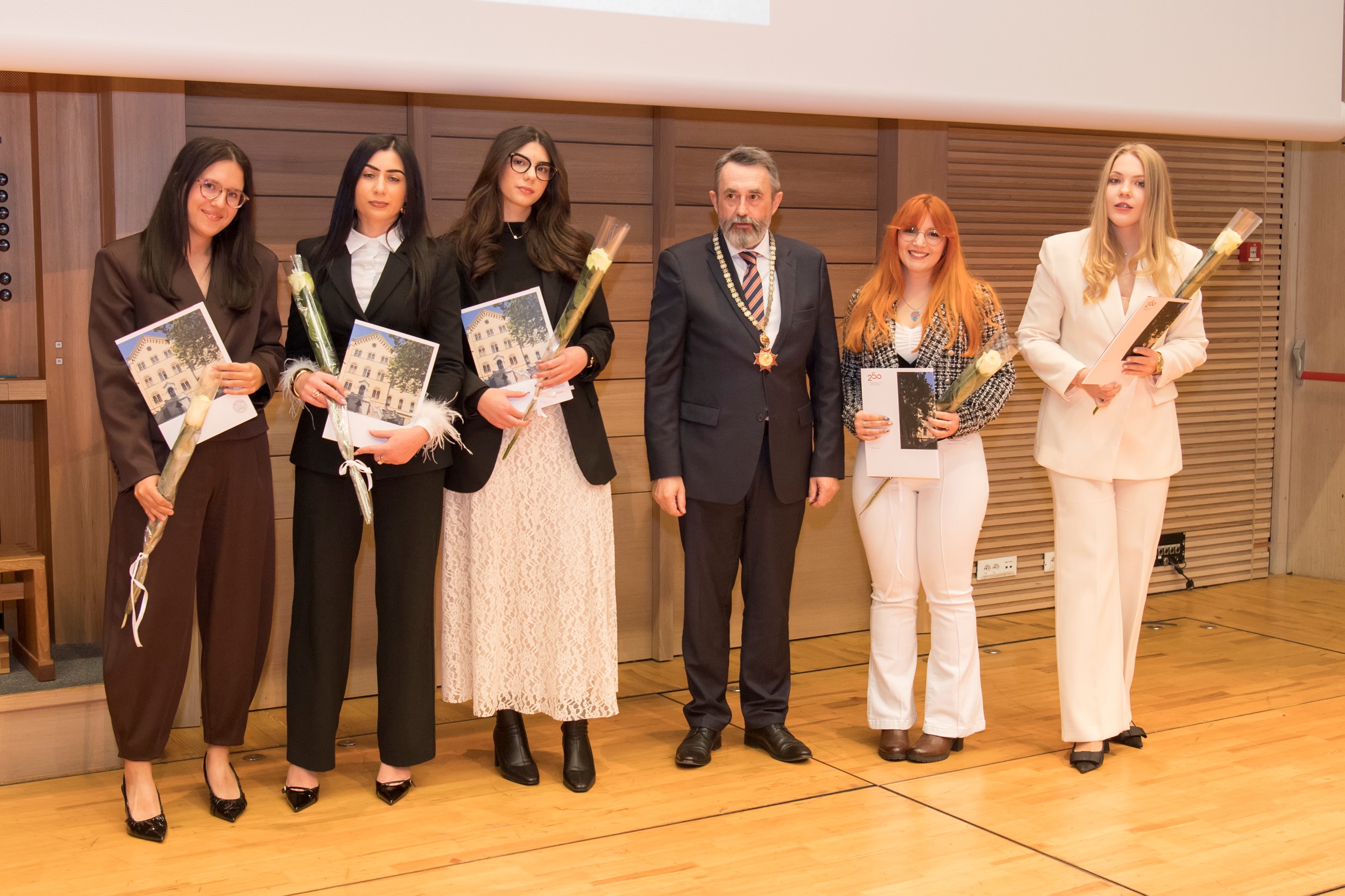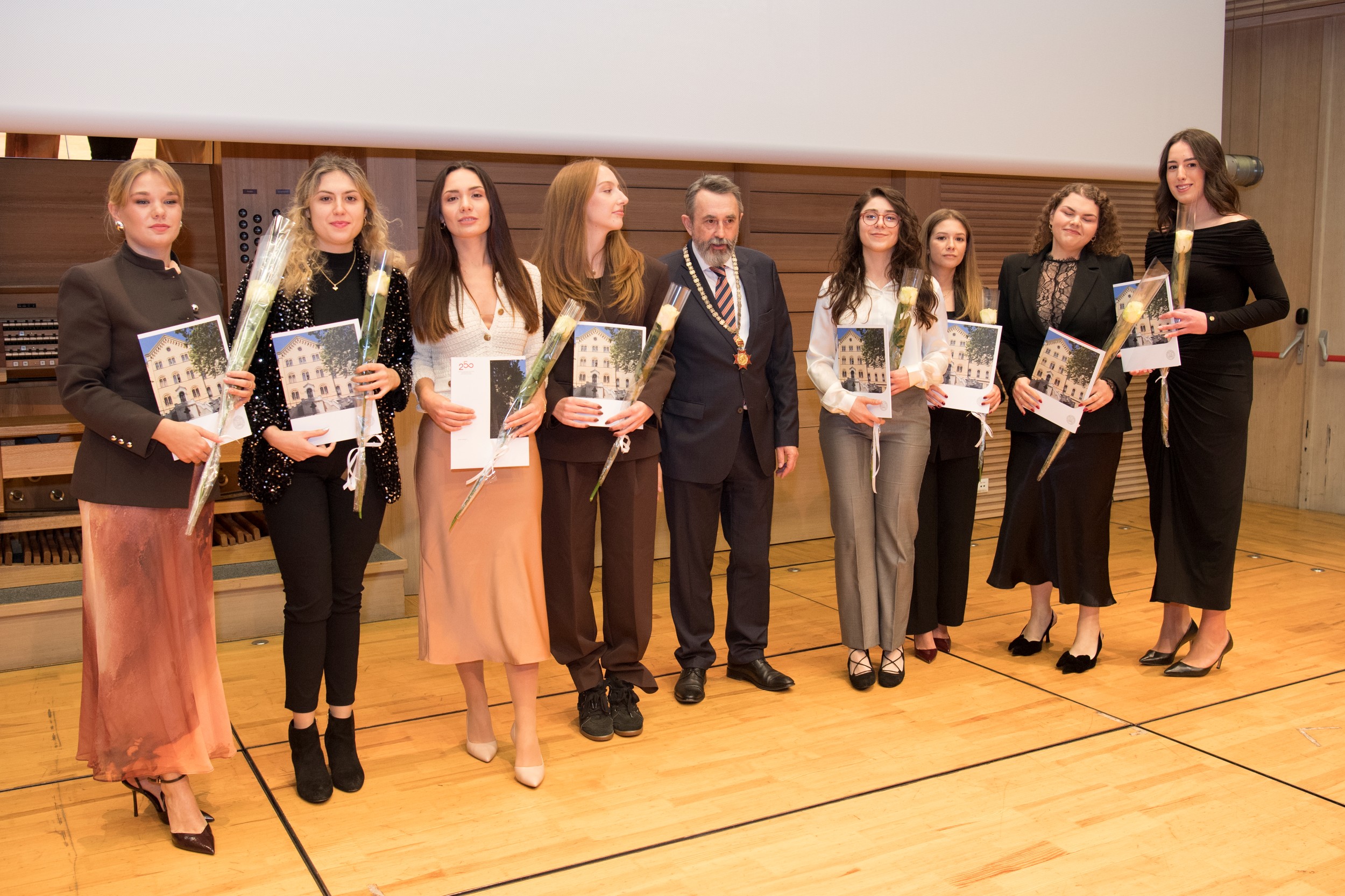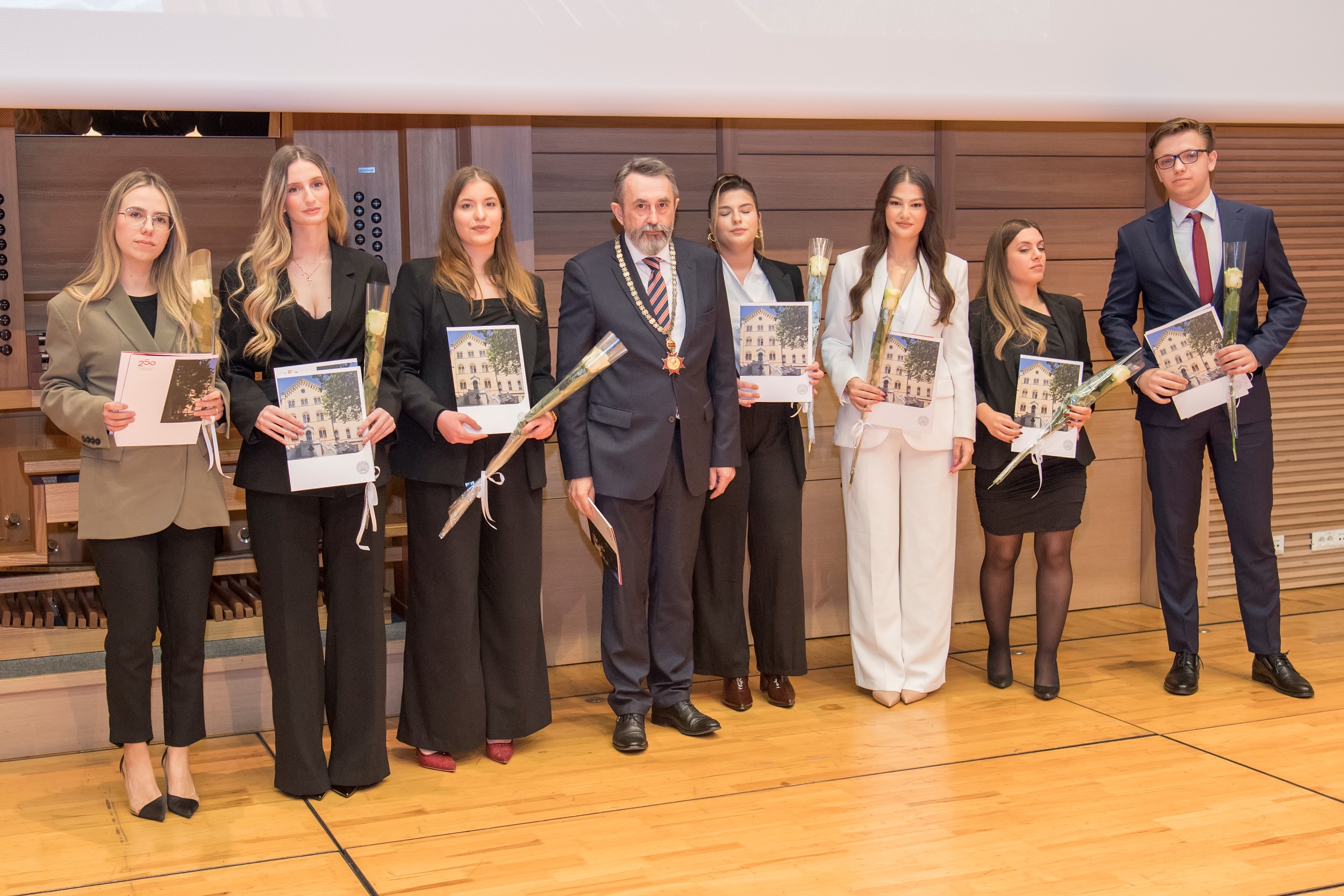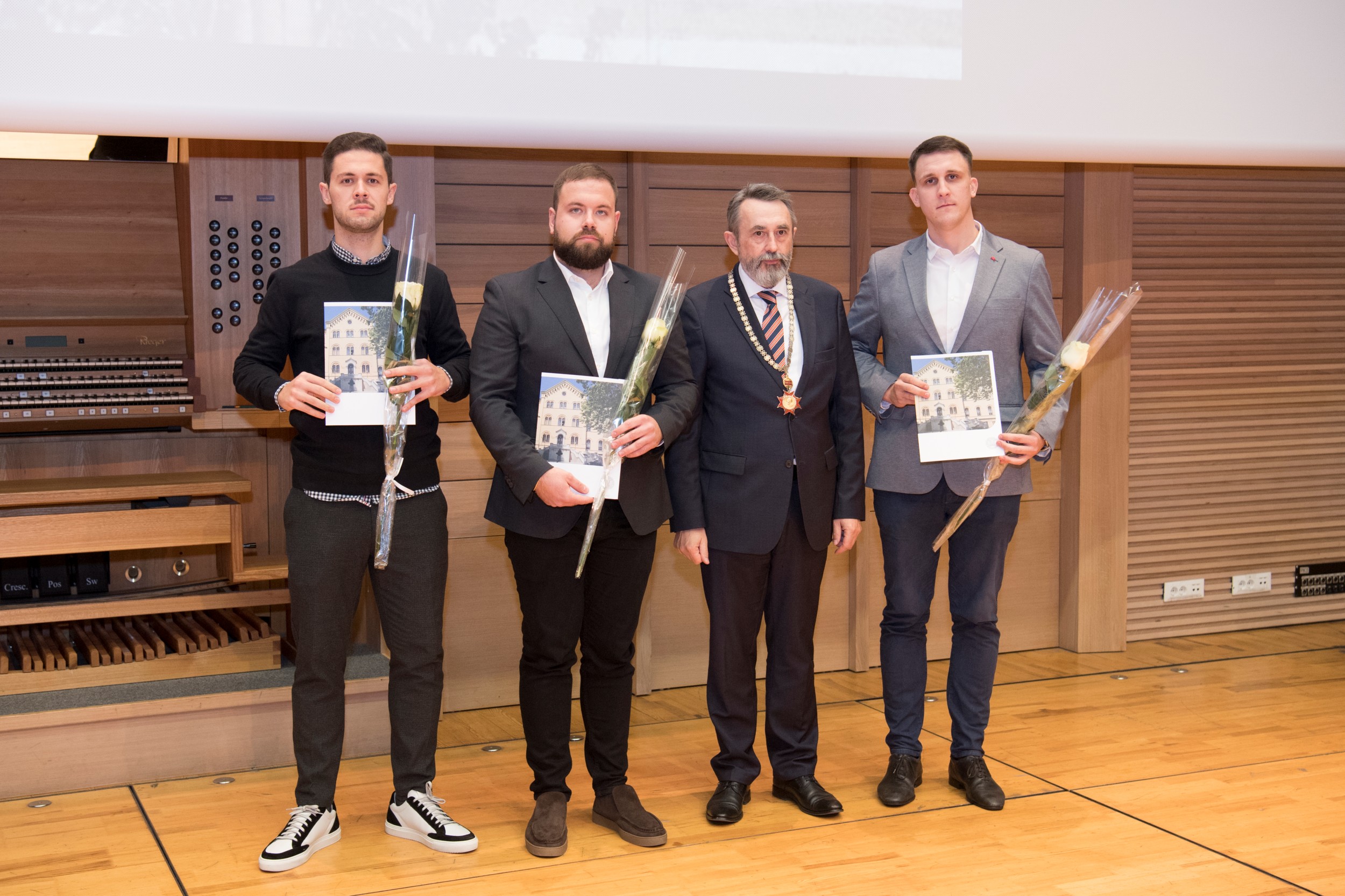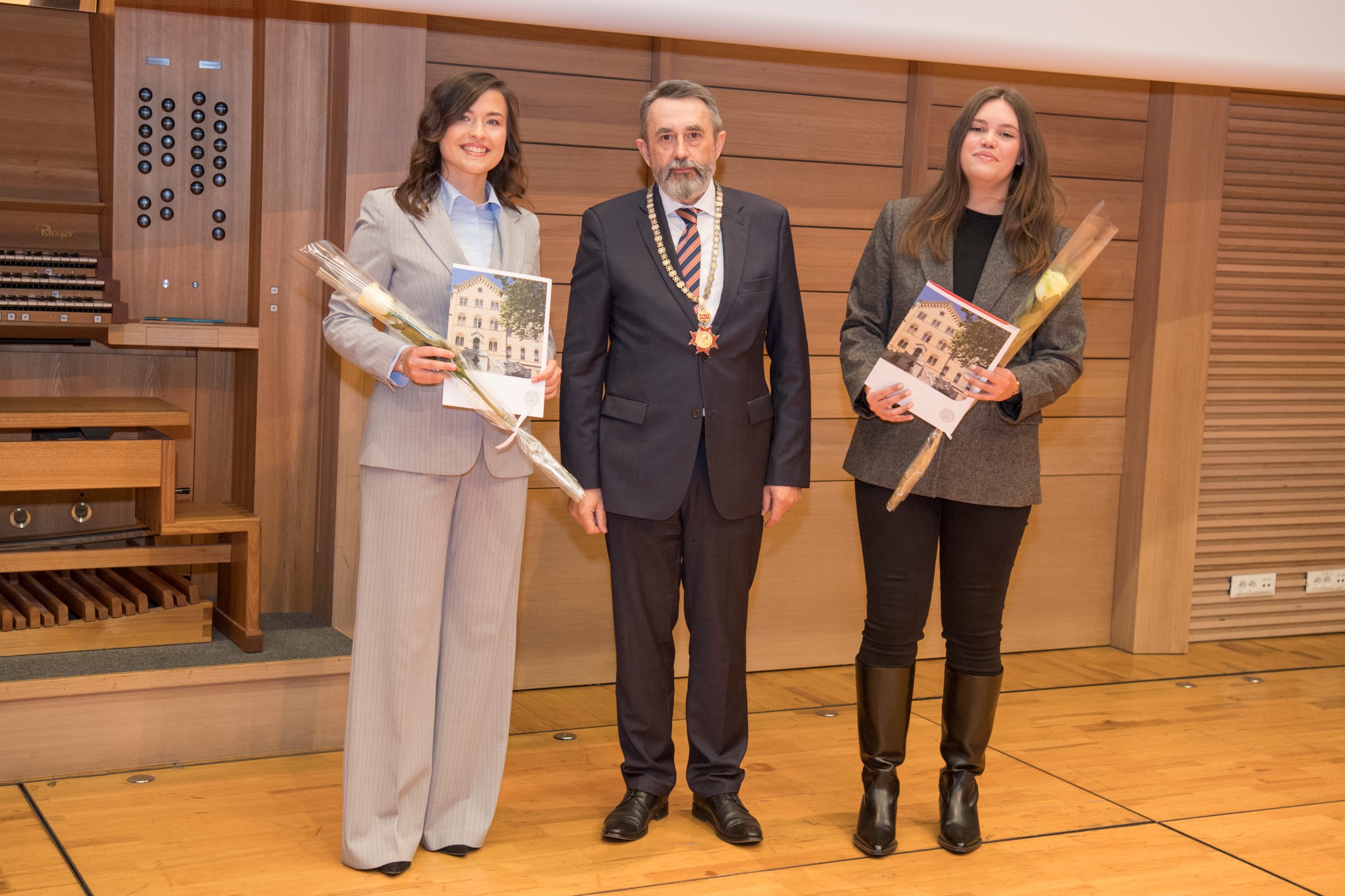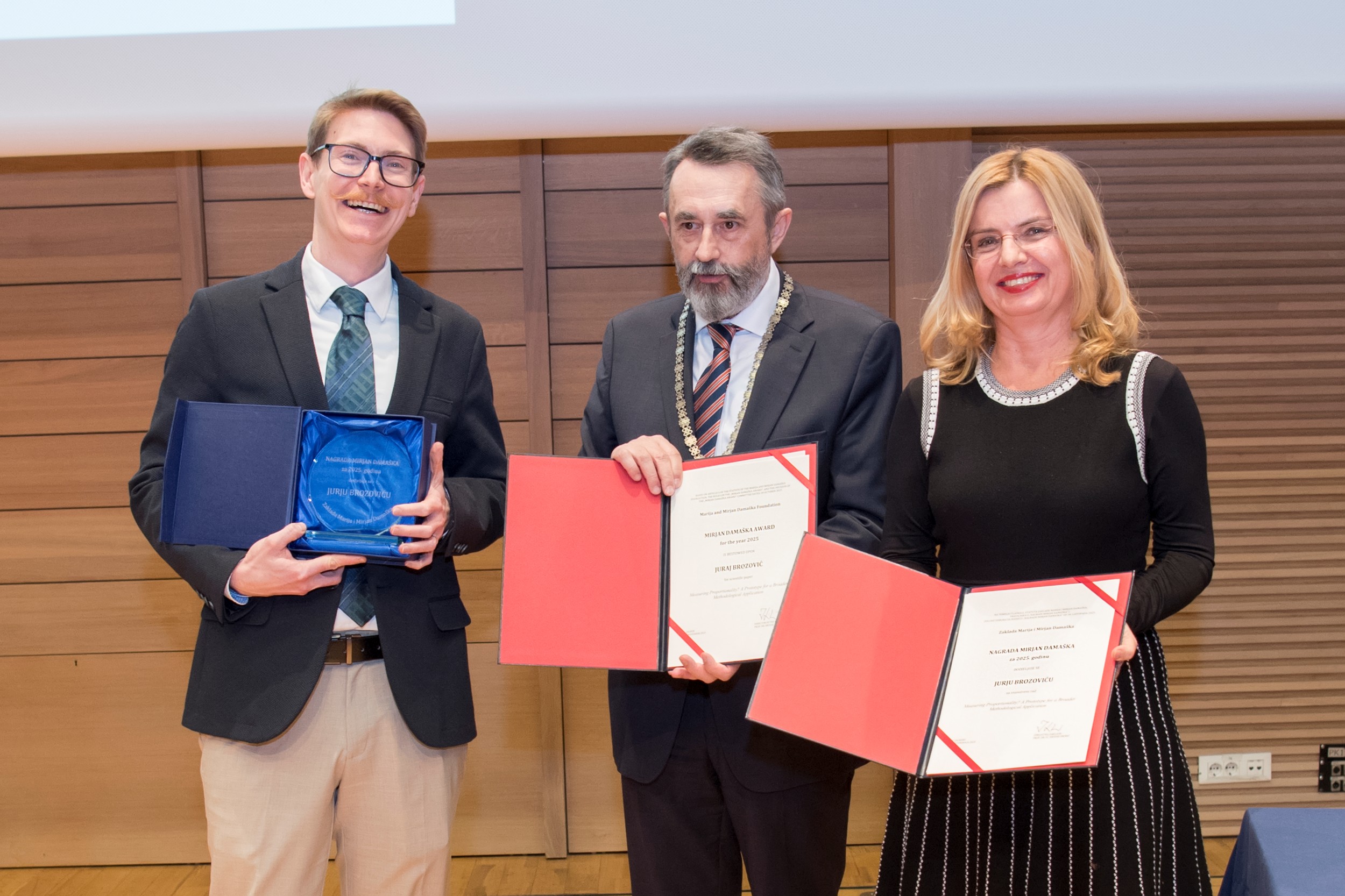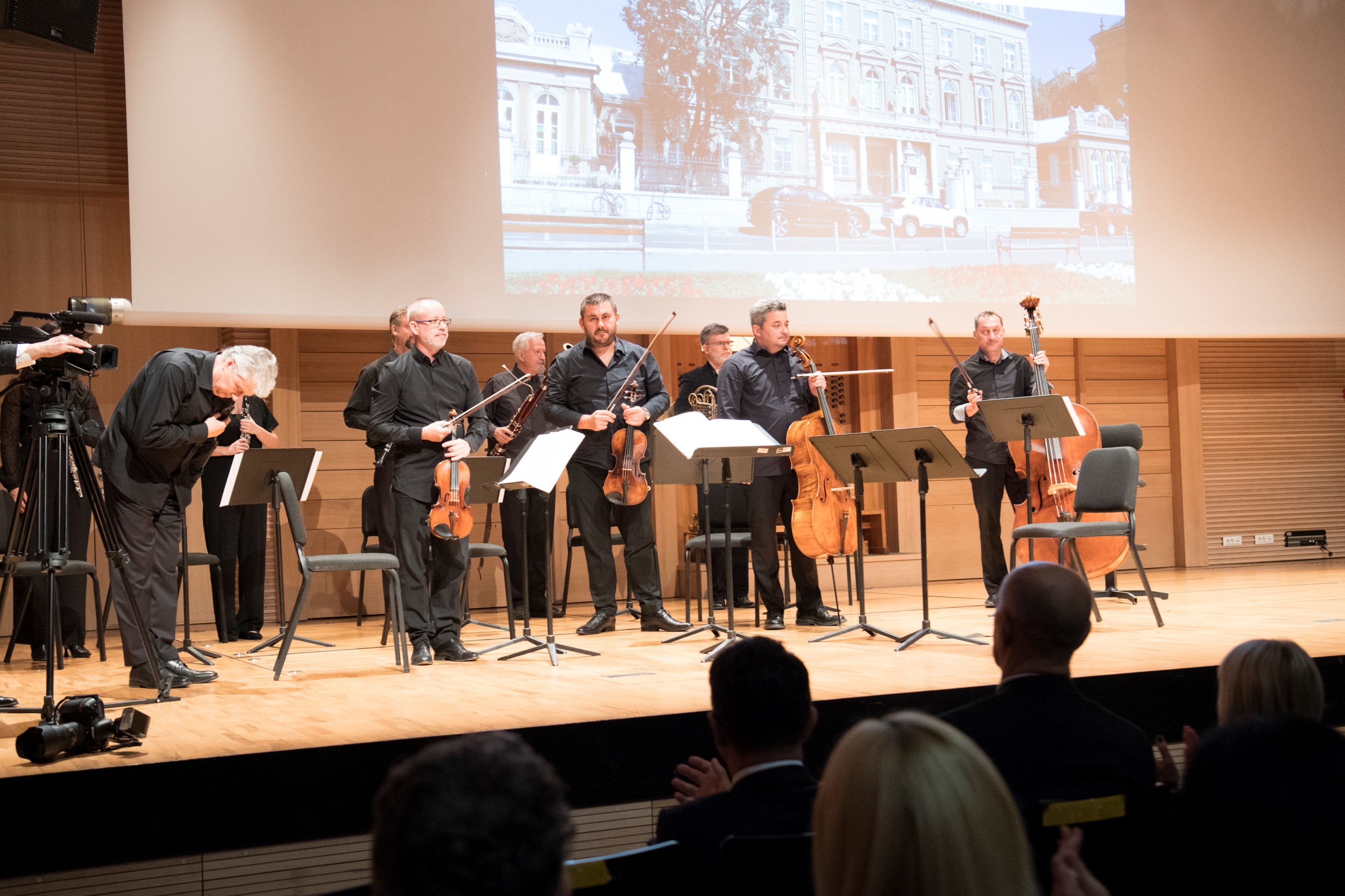The Faculty of Law of the University of Zagreb marked the 249th anniversary of its founding with a formal session held in the Blagoje Bersa Concert Hall of the University’s Academy of Music. The celebration of Croatia’s oldest and largest institution in the field of legal education — and the only one with an uninterrupted tradition of operation — was honoured by the presence of the President of the Republic of Croatia, Zoran Milanović; the President of the Constitutional Court, Prof. Frane Staničić, the Rector of the University of Zagreb, Prof. Stjepan Lakušić, the Minister of Justice, Public Administration and Digital Transformation, Damir Habijan; Krunoslav Katičić as envoy of the Speaker of the Croatian Parliament; representatives of the City of Zagreb and of parliamentary committees; distinguished judges and ombudspersons; court presidents; vice-rectors of the University of Zagreb; the deans of Croatian law faculties; and the deans and vice-deans of the University’s constituent faculties.
Rector Lakušić used the occasion to announce the commencement of the comprehensive renovation of the Faculty of Law building and the University Rectorate at Trg Republike Hrvatske 14, emphasising that the contract initiating the works had already been signed — a gesture he described as the finest possible gift to the Faculty on its anniversary.
“The Faculty of Law is an institution in which systems of values have been shaped, legal sciences advanced, and generations of experts educated — experts who have left a lasting mark on the administration, the judiciary, the legislature and the public life of the Republic of Croatia. Its contribution is recognised not only through the quality of its teaching and research, but also through the work of numerous professors, researchers and alumni who participate in the formation of public policies, legislation and systems of legal protection. Throughout the centuries of its existence, the Faculty has served the state as a vital link between legal scholarship and public responsibility. This anniversary is therefore not merely an occasion for commemoration, but also an affirmation of the Faculty’s significance in contemporary society, in the development of the rule of law, in the strengthening of institutions, and in the promotion of a culture of legality,” Rector Lakušić stated.
Minister Habijan underlined that a priority of the Ministry is to change the public perception of the judiciary, which is currently rather negative within Croatian society, and he highlighted the essential role of new, young professionals.
“We can amend laws, invest in infrastructure, and improve communication between judicial officials and the academic community, but this alone will not suffice. Croatia has a high number of judges per capita compared with the European Union, yet our courts also face a substantial annual inflow of cases. We can achieve improvements, but doing so calls for responsibility from all of us. By the end of this year, or early in the first quarter of the next, we will submit amendments to the Judicial Academy Act, because we want new, fresh, young blood. This is a message to the many students present here today. We must keep you in mind, for you are essential to this system, to judicial institutions, and you are most welcome indeed,” Minister Habijan stated.
“This is my university, my faculty, my alma mater. In 1991 everything changed — we returned to the factory settings of an open, democratic society in which law, the legal academy, the legal profession and legal education, together with other pillars of the University, constitute one of the granite foundations of society. This Faculty building, along with the premises of the University and of other faculties in Zagreb, represents our culture, our tradition and our base — and that will not change,” stated President Zoran Milanović.
Dean of the Faculty, Prof. Ivan Koprić, DSc, emphasised that the Faculty has, over the past four-year period, dedicated itself intensively to development and highlighted the continuous improvement of enrolment results across all study programmes.
“In the past three years, we have increased the number of first-year law students by 113 — an increase of 21.7 percentage points. Despite the well-known downward trends in the number of school-leavers enrolling in higher education and the growing range of study programmes in Croatia, we enrolled 107 more first-year students in comparison with 2024. For the Faculty’s continued prosperity, four priorities remain essential — accelerated internationalisation, the completion of the comprehensive renovation of faculty buildings, the commencement of construction of the new library building, and the modernisation of study programmes,” Dean Koprić stated.
To mark the Faculty Day, awards were presented to students, professors and staff for the 2024/2025 academic year. For their contribution to the Faculty’s best innovation, honours were conferred upon members of the alumni community Dr Ema Menđušić Škugor, Natalija Labavić and Iva Mišković; Prof. Ružica Šimić Banović, Prof. Olja Družić Ljubotina, Assoc. Prof. Romea Manojlović Toman, and Ivana Karaman Jurić. The award for the best-rated course was received by Assoc. Prof. Romea Manojlović Toman, while recognition for the lifelong learning programme went to Senior Lecturer Miljen Matijašević, Univ. Spec. Philol., and Assistant Prof. Irena Klemenčić.
The Dean’s Award for a written paper was presented to Lovro Opaček, Marin Roglić and Paola Kopren. For exceptional team or individual achievement in a moot court competition, awards were presented to Karla Brnadić, Petra Japundžić, Klara Kramarić, Pamela Senjak, Sandra Šarić, Fran Krsto Šavorić, Rea Štoković, Marija Žarak, Patricija Čeović, Franka Logarić, Iva Pejić, Nika Vicković, Nika Pavičić and Marko Šišić. For presenting an original or co-authored paper at an international conference, the Dean’s Award was received by Paula Sviben, while Leon Delić, Josip Hrvatić and Jakov Vojta Žujo were recognised for team or individual competitive success.
Students distinguished for their community-beneficial contributions within the academic and wider community — and awarded the Dean’s Award — were: Dora Begović, Petra Klarić, Ivana Nikolić, Sara Tonković, Lana Hubak, Suzana Kegalj, Ana Krošl, Iva Blažević, Frančeska Brajnović, Laura Lučić, Ena Levatić, Sara Nekić, Dora Jakšić, Karmen Jurić, Josipa Šagud, Karla Kulaš, Gabrijela Martinović, Paula Mrdeža, Sara Plentaj, Ana Guniver Rogina, Filip Štimac, Nika Babić, Emanuela Dolački, Paula Martinčević, Ana Milčetić, Zrinka Babić, Marinela Hrgetić, Petra Jurina, Lucija Krstić, Anesa Seferović, Ivana Maria Uležić, Petar Dragan, Ivan Kraljević, Josip Pokorny, Vanora Polanović, Valentina Benko, Bruna Čukelj, Elena Dević, Patricija Dlesk, Ema Kačanić, Lucija Lacković, Chiara Nikšić, Lucija Škara, Marija Čukelj, Hana Gregurinčić, Katarina Srbljinović, Marko Šišić, Tin Uzelac, Luka Viduka, Bartol Vuković, Marija Hodalj, Nika Nešić, Danijela Blažeković and Lucija Ević.
For the best academic results in the 2024/2025 academic year, Dean Koprić recognised: Hanan Al Issa, Blaž Bertol, Maja Skorić, Iva Smolčić, Hrvoje Matić, Jure Topić, Leon Delić, Marija Žarak, Leonarda Pilčik, Petra Miletić, Monika Markus, Petra Fištrek, Ivona Ilić, Dea Hrnić, Davor Ribar, Kristina Luheni, Marija Ravić, Sanja Aralica, Dunja Ljilja, Lana Hubak and Ena Kolarić.
Staff members who made an exceptional contribution to the Faculty’s work and achievements were: Ana Duić, Krunoslav Fučkor, Marija Križanec, Damir Kuzmić, Milena Mikulić, Kaja Pavić, Matija Ribić, Verica Šencaj, Marija Tomečak and Iva Vitez.
During the celebration of the 249th anniversary and Faculty Day of the Faculty of Law of the University of Zagreb, the award of the Marija and Mirjan Damaška Foundation was formally presented.
The Mirjan Damaška Award for 2025 was conferred upon Dr Juraj Brozović for the paper Measuring Proportionality? A Prototype for a Broader Methodological Application.
The decision to confer the Mirjan Damaška Award for 2025 was adopted by the Award Committee at its session held on 30 October 2025.The Mirjan Damaška Award is presented for scientific work in the fields of criminal law and criminal procedure law and criminal law history; comparative constitutional and procedural law; and international criminal law and cooperation in criminal matters.
